GRANTS and the OLD GRANTITE CLUB

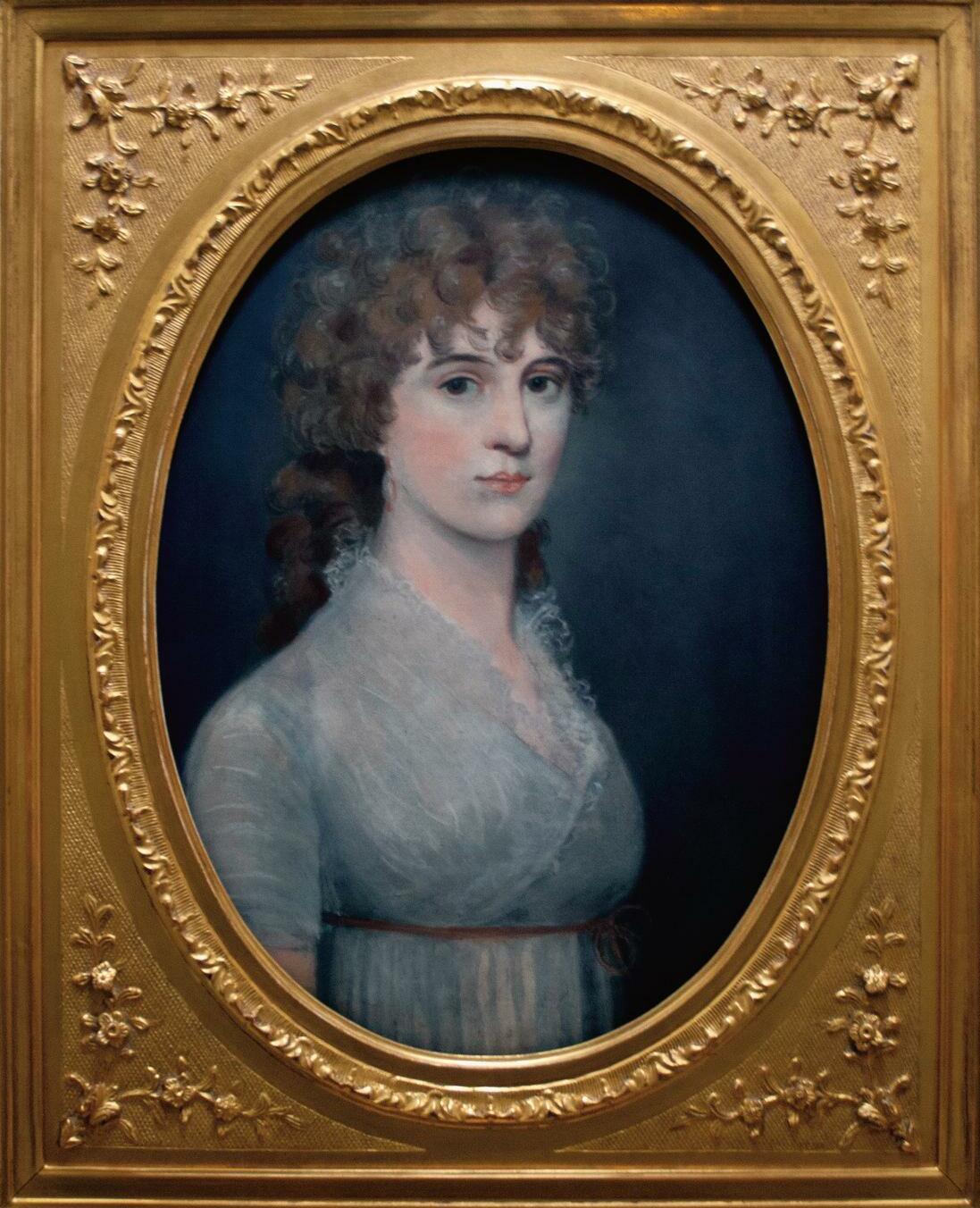 Mrs. Richard Grant (Mother Grant III), painted in about 1815
Mrs. Richard Grant (Mother Grant III), painted in about 1815
A History
GRANTS and the OLD GRANTITE CLUB
NASCITUR EXIGUUS, VIRES ACQUIRT EUNDO OGC The Old Grantite Club 2022
First published in 2022 by Barrington Publications on behalf of the Old Grantite Club, Westminster School, Dean’s Yard, London SW1P 3PB
Copyright © The Old Grantite Club 2022
All rights reserved. No part of this publication may be reproduced, stored in or introduced into a retrieval system, or transmitted, in any form, or by any means (electronic, mechanical photocopying, recording or otherwise) without the prior written permission of the publisher. Any person who does any unauthorized act in relation to this publication may be liable to criminal prosecution and civil claims for damages.
ISBN: 978-0-9926607-1-0
Set in Palantino and designed by Oonagh Connolly
oonagh@candc-design.com
Printed in the UK by Severnprint Ltd
This book is sold subject to the condition that it shall not by way of trade or otherwise, be lent, re-sold, hired out, or otherwise circulated without the publisher ’s prior consent in any form of binding or cover other than that in which it is published and without a similar condition including this condition being imposed on the subsequent purchaser.
3 CONTENTS Forewords 1959 Adrian C. Boult 5 1986 F. D. Hornsby 6 2022 Dominic C R Grieve 7 Histories and Memories Grants’ History to 1959 9 Lawrence Tanner Grants in the 19th Century 13 H. D. Nicholson and Arthur Southey Grants 1959 to 1986 21 Joan Fenton Grants 1986 to 2022 25 Simon Mundy The Old Grantite Club 1921-1959 51 Lawrence Tanner and William van Straubenzee 1959-1986 72 Simon Mundy 1986-2022 74 Tim Woods Lists House Masters 76 Heads of House 77 Presidents of the Old Grantite Club 84 Acknowledgements 85
4
FOREWORDS
1959
Sir Adrian Boult D.Mus., LL.D.
It falls to me as President of the Old Grantite Club to commend this History of Grants and of the Old Grantite Club to all who read it. It is, of course, primarily designed for, and of interest to, those who were fortunate enough to pass their years at Westminster Up Grants. But it will also be of interest to a wider Westminster public and is part of the distinctive contribution of the Old Grantite Club to Westminster ’s Quartercentary Year
For the history of the house we have been able to call upon the unrivalled authority of Mr. L.E. Tanner who was, I think, the very first boy who spoke to me and was kind to me when I entered the House in 1901. His account of the fortunes of the House with the longest unbroken pedigree of any Public School makes fascinating reading, set in the background of the adventurous years in which Grants has formed part of the School. The history of the Club has been assembled by our Honorary Secretary, Mr. W.R. van Straubenzee, relying partially on the old minute books of the Club and partially upon the personal recollections of some of those who helped to found it. As with any work written in recent years, the late Dr G R Y Radcliffe gave invaluable and detailed help.
The house is old, the Club comparatively new. Yet the house is new, as its modern buildings show, while the Club is old when compared to any other house at Westminster. The first plays a vital part in moulding the lives of those who spend five years within it, and the second allows them to keep in touch with the friends they then made and with others older and younger who share the same tradition. But Grants is not exclusive, and never forget that she is part of a far greater whole. It is as a tribute to the 400 years of the school’s life that this modest contribution is made, for it seems right that these matters should be recorded as we start our fifth hundred years of life
5
1986
F.D. Hornsby
It is over twenty five years since the original edition of this History of Grants and the Old Grantite Club was first printed, and there has for some time been a need for a new edition, to bring the story up to date.
The task of editing this new edition, and of chronicling the events of recent years, has been entrusted to Simon Mundy (GG 1968-1972), to whom we are indebted for an illuminating account which will, I feel sure, be read with great interest by all who are associated with the House.
The Club is most grateful to those Old Grantites who responded generously to an appeal for funds to meet the printing costs. This has allowed the Club to distribute copies to all Old Grantites whose addresses are known, and also to provide a sufficient stock of copies for present and future Grantites.
Since 1959 many and far reaching changes have taken place within the House, as Simon Mundy makes clear. But to outward appearances, Grants remains unchanged, as familiar today as it has been to past Grantites over the generations. Unchanged also are the close links which exist between the House and the Old Grantite Club. Long may this continue.
6
Rt. Hon. Dominic Grieve KC
House histories, like school histories have a risk of being staid. Too often they end up as a somewhat repetitive chronicle of selectively remembered achievements and amusements with the downsides glossed out. But the reader of this volume need not fear this. This chronicle of Grants in a period of immense change is vivid and at times rather startling. As the product of the first five years of David Hepburne-Scott’s house mastership from 1969-74, I had expected the account of life under his successors as House Masters to be of a quieter and more organised community This was certainly the impression they seemed to want to convey when I met them. Yet if anything it comes across, at times, as more, albeit differently, anarchic from the Grants I experienced. I am also delighted to read that the arrival of girls has had a beneficial impact on conditions of life in the House without in any way undermining its identity. Indeed one of the most attractive aspects of this history seems to be that a place which, when I was there, saw itself as exceptional but was rather tribal and inward looking, sees itself both as exceptional and welcoming to others from outside. Survival as a boarding house accessed by many day pupils may explain this. The transformation brought about by being able to enter Grants through the front door rather than the basement another. That this should have turned the front steps into a social hub would make an interesting anthropological study.
There are inevitably some changes I regret to note. Seeing that Walking the Mantelpiece was a genuinely old tradition dating back well into the 19th century and possibly to the origins of the House, its abolition in 1993 on the back of “health and safety” concerns strikes me (as a lawyer who once specialised in this field) as rather absurd. My psychological and physical well -being felt under much greater threat from the “Lagging Test”, now mercifully gone along with lagging, than the excitement of this rite of passage.
But the success of a place such as Grants should not be measured just by historical continuity. As John Carleton said “it is strange that schools pride
7 2022
themselves on their antiquity when they can pride themselves on their eternal youth”. As a boy I used to go and read to the partially sighted Dr Lawrence Tanner, who had started as a boy Up Grants in 1900 and gone on to be a master at the school. He would have been as delighted to read of Grants today as a successful community as I have been.
8
HISTORIES AND MEMORIES
Grants from the beginning to 1959
Lawrence Tanner It is a remarkable fact, and so far as is known unparalleled at any other Public School, that a school boarding house should have borne the same name and have been situated in almost the same place for over two hundred years. Yet such is the case with Grants.
It was in 1749 that Mrs Margaret Grant (Mother Grant 1) became the tenant of a house in Little Dean’s Yard which stood on the site of the old Bursary The House had previously been known as Ludfords, and the poet Cowper had either just left or was still a senior boy in the House when Mrs Grant became its ‘Dame’. She was the widow of a Mr John Grant who had died in Great Smith Street in 1747 where, according to the General Advertiser, he “had kept a boarding school (but probably a boarding house is meant) for many years”. Who the Grants were or where they came from is unknown. The name suggests Scotland, and that they were of a good family may be deduced from the fact that their descendants possessed a large ‘conversation’ picture painted by Highmore about 1730-40 showing the whole family suitably posed in a landscape setting
In 1765 Mrs Grant moved across Yard to the large house which stood on the site of the present Grants. Meanwhile the eldest son, Richard, had grown up. From Westminster (which he entered at the tender age of six and left as Captain of the School) he had been elected to Christ Church, and in 1764, as the Rev. Richard Grant, he returned to Westminster to become an Usher at the School. On his mother ’s death in 1787 he and his wife (Mother Grant II) took over Grants. They lived Up Grants until 1813, and their reign saw the pulling down of the old house and the building of the present Grants in 1789 or thereabouts. Among their boarders were a future Prime Minister (Lord John Russell), a future Archbishop of Canterbury (Charles Longley}, and the 6th Earl of Albemarle who gives, in his Fifty Years of My Life, a vivid account of the
9
House in his time, and lived to be the last officer survivor of the Battle of Waterloo.
In 1813 the Rev Richard Grant retired to the country vicarage of Stansted Mountfichet in Essex, where he is buried and where there is a tablet in the Church setting out his many virtues. On his retirement he handed Grants over to his son, Richard Grant, and his young bride (Mother Grant III). One would like to know more about this Mother Grant. In 1950 the writer of these notes was able to trace a very charming pastel portrait of her as a young and beautiful woman. This portrait, together with some miniatures of the Grants, were purchased from the owner by the Old Grantite Club. They were handed over to the Master of Grants at the Jubilee Dinner of the Club in 1951 and the portrait now once again, after a hundred years or so, hangs Up Grants. Richard Grant died in 1837 and shortly afterwards his widow left the House and was succeeded by Mother Jones.
The House ceased to be a Dame’s house in 1847 when the Rev. James Marshall became the first House Master. About the same time the Rev. Stephen Rigaud became the Master of the adjoining House. But while Rigauds adopted the name of its new Master, Grants continued to be known both then and for the future by its historic name and thus has preserved the memory of the three Mother Grants who were its Dames for almost a hundred years.
It was in Marshall’s time that the senior boys began to use the rooms know as ‘Chiswicks’ as studies. These rooms which adjoined the old Dining Hall in the Yard at the back of Grants had been originally used as sick rooms, and in their name preserved the only memory of a time when the whole School used to adjourn to the old College House at Chiswick in times of plague and during the summer months. It was, and is, a word peculiar to Grants, just as the custom of making new boarders ‘walk the mantelpiece’ in Hall is a distinctive Grantite custom. Life Up Grants under Mr Marshall has been vividly sketched by the late Captain Francis Markham in his “Recollections of a Town Boy at Westminster”.
In 1868 Marshall was succeeded by the Rev. Charles Alfred Jones. It was during his time in 1878 that House colours were adopted in the School and the familiar chocolate and blue became the colours of Grants In 1884 appeared the first number of the Grantite Review which may claim, therefore, to be the
1 0
oldest House magazine in the School or perhaps in any Public School. When Jones retired in 1885 he was succeeded by the Rev. William Heard, and shortly afterwards an alteration took place in the exterior appearance of the House
Up to 1885 all the houses in Little Dean’s Yard had had the old up-and-down steps to the front doors. This was the main entrance to Grants and Rigauds, both for the House Masters and for the boys.
In 1885 a new entrance was made through the basement of Grants for the boys and the front door steps assumed their present appearance. Mr. Heard was appointed Head Master of Fettes in 1890 and Mr. Ralph Tanner was appointed House Master in his place. At that time Grants still retained much of its primitive simplicity. There were no bathrooms – senior Old Grantites will remember the little tin hip-baths, which were placed by each bed in the dormitories – and there was no electric light The passages, Chiswicks and Hall were lit by gas, but the boarders went to bed by such light as could be induced to shine from the little half-hour candles – ‘tollies’ – in their round brass candlesticks which had been used by generations of former Grantites. Other arrangements were equally primitive, but gradually some improvements were made and the more obvious defects removed.
The 1914 War took a grievous toll of Old Grantites, but one Old Grantite, Colonel W. Martin-Leake, gained an almost unique distinction by being awarded a clasp to the Victoria Cross which he had already won in the South African War. He was the third Old Grantite to win a Victoria Cross; the others being Cornet W G H Bankes who was awarded a posthumous VC for gallantry at Lucknow in 1858, and Captain (later Major-General Sir) Nevill Smyth for gallantry at Omdurman in 1898.
In 1919 Mr. Tanner retired. A much loved House Master, Old Westminsters and Grantites subscribed for his portrait to be painted by Mr. Briton Riviere and a replica of the portrait now hangs in the Hall of Grants. Under his successor, Major Donald Shaw DSO, the old Hall was pulled down in 1921 and a new Hall made out of the old Chiswicks. At the same time a new building was erected at the end of the Yard with new Chiswicks, changing rooms, etc. Major Shaw died in 1925 and was succeeded by Mr. A.T. Willett (OW) in whose time much was done to improve the amenities of Grants In 1935 he was succeeded by Mr. T.M. Murray-Rust.
1 1
In 1939, War saw Grants evacuated to Lancing where they were at Lancing College Farm. The fall of France necessitated a second evacuation, this time to Exeter where the House took up residence in Mardon Hall In the autumn of that year the School moved to the borders of Herefordshire and Worcestershire and the House took up residence at Fernie Bank, a house near Whitbourne, where a number of the boys were billeted out in surrounding farms and houses. Fortunately, Grants itself escaped damage from bombing, and for a time in the later years of the War it housed the new Under School under the Head Mastership of Mr. Willett. When in Play Term 1945 Grants returned to Westminster there was no boy then in the House who had been up Grants before the War. But the traditions of the House had held fast in exile and it was with undiminished prestige and vigour that the House returned to new life and interests When the House was fully re-established in its ancient home, Mr. Murray-Rust retired and was succeeded by Mr. J.M. Wilson, under whose leadership the Hall and the adjoining buildings at the back of Grants were rebuilt. These new and greatly improved buildings were completed in 1955 and with them a new chapter in the long history of the House was opened.
1 2
Grants in the Nineteenth Century
Lawrence Tanner
The following two accounts, preserved in the School Archives, give a fascinating picture of life in a boarding House in the middle years of the last century.
The first, by the Rev H. D. Nicholson, was delivered as a speech to a gathering at the Café Royal on March 20th, 1912 and was reprinted as a pamphlet, part of which is reproduced here. The Rev. Nicholson was up Grants from 1842-45.
There was then no resident master at Grants; but the Rev. Hugh Hodgson had a little room on the right of the door for a study Here he had Prayers every night. The house was under the charge of a Lady Matron – Mother Jones ... She was very kind but kept firm discipline, in which she was well supported by the older boys. She had rooms on the left of the front door, and another at the foot of the stairs where she sat in state every Saturday morning to pay us all our weekly allowances.
The rest of the staff consisted of a housekeeper – Old Mother Kelly – a manof-all-work, and two maids. Mother Kelly was the fattest woman I think I ever saw, though old Mother Shotten, who kept the tuck shop, was not far behind ... Her great function was to watch the Friday night washing of all boys under a certain age, previous to their Saturday outing We were stripped to the waist, stood in a pail of hot water, and well scrubbed by the two maids. Another part of the maids’ work was to go out in the evening, after lockers, to fetch beer from a public house which, strange to say, was allowed... The feeding up Grants was very good:
Breakfast: New bread and butter, ad lib. In winter we could make toast, three rounds of bread at the same time, on a long toasting fork reaching over a huge fire. Of course, we were at liberty to add the contents of ‘hampers’ from home ... There were no meals in College Hall, except dinner, until Liddell’s time.
Dinner: The best joints and vegetables; whether there was ever pudding I do not remember.
1 3
Supper: The cold joints from dinner. The Sixth Form boys never joined this meal, but had tea and tuck in their bedrooms.
The second, fuller, description was written by Arthur Southey and dated 'Teignmouth, 18th March 1911’. It has remained in manuscript and has not been published before.
It was in the summer of 1847 that I made my first acquaintance of Grants Boarding House at Westminster. I was only a half-boarder at first, till the end of the summer term. There was a Mrs. Jones who ran the house but she was never seen, except at dinner time at 2 o’clock when she always appeared in black satin. The chief occurrence in the term was the Eton and Westminster Boat Race This caused a good deal of excitement as we had beaten Eton the year before; however Eton returned the compliment this year and beat us handsomely. I went to the race and went after to a supper Up Grants which Mr. Marshall, who had taken the house off Mother Jones’s hands, gave us. Marshall was very kind and wanted to put me up, that I might not have to walk the two miles home through the streets at night, but I told him I would rather go home as I was afraid my people would be uneasy about me.
After the summer holidays were over, I went back Up Grants as a full boarder. I arrived late in the afternoon but there were no signs of any boys about the place. I finally made my way to the hall about 8 o’clock, where there was tea laid out for twelve boys, superintended by a stout matron whose name I cannot recall. I asked her where the other boys were and she said they won’t turn up till the last moment at 10 o’clock. She then went into business with me, undertaking to get me a cup and saucer and plate, and a brown pitcher and white basin for my bedroom (for a consideration – for we had to buy all these necessary articles in those days).
I found myself located with four other boys in a good size room. Furniture: five beds, each with a bureau by its side. These beds turned up when not in use, which was a convenience and gave more room but decidedly inconvenient, as I subsequently discovered, when a too playful companion would suddenly turn it up, thereby disturbing the inmate’s repose The result of this manoeuvre was to send the sleeper ’s feet right over his head. Just as he
1 4
thought his back would be broken he generally managed to slither out on to the floor. Yes, I certainly found my new friends were occasionally rather too playful As I was the newest comer, and the smallest, I had to undertake the office of fag to the room. The duties were not onerous, being chiefly to keep all the pitchers supplied with water.
There was a new matron in charge of the house who succeeded Mrs. Jones – Mrs. Crowther was her name, generally called Mother Crowther. She was very kind to us and well liked by the boys. Including some new boys, there were only fifteen of us in the house, as there were no sixth form boys just then. We had our own way and did pretty much what we liked. Most of us lived in the dining hall, which opened on the back yard, and another party of us lived in a room at the top of the house looking out on the yard. In order that we might have quicker communication with our friends aloft, some bright individual arranged to fasten a stout cord to the window above and the hall door below. Another cord, with a good size ring on it, slid up and down with anything that wanted being sent below. This machinery answered very well and was a source of great amusement to us for some days. At last, when an extra heavy load was coming down (it included, amongst other things, a heavy lexicon and a candlestick with the candle lighted), the string broke and the whole cargo came down just in front of the window where the Master of the House was sitting in his study. He naturally objected to the chance of his window being broken and put a stop to the proceedings for ever.
One day there was a window pane broken in our room, with a large round hole in it. As there was a high wind blowing this made the room very draughty. To obviate this inconvenience we made a raid on all the dirty linen in the room and stuffed up the hole. The result was that by the morning the clothes had all blown away into the next garden, with a fine row of trees belonging to the 2nd Master, Mr. Weare. There was a fine show of shirts, etc., hanging on the trees. I think they were all restored at last, but it must have taken both trouble and time to get them down from the tops of the trees, where they were certainly not ornamental.
In the yard, next to the hall, there were three small rooms which were called Inner Chiswick, Middle Chiswick and Outer Chiswick The name came from a house belonging to the school at Chiswick where boys that were ill used
1 5
formerly to be sent for a change of air. On half school days we were always locked up in the boarding houses for two hours in the afternoon. We were supposed to do some work but we generally got into mischief One afternoon we made a dummy man, filling a suit of clothes with dirty linen etc., and fitted up the life-size figure with a mask and a hat. When it was finished it was hung up by an old rope outside the window. I went into the yard and was looking at it when the rope broke and the dummy, throwing out its arms in the most natural and pathetic manner, fell into the area, after pausing for a few seconds on the top of the Master ’s study window. The servants rushed into the area but were afraid to touch it, saying “he’s broken his leg” which was curled up under him in a rather curious fashion. The horrified master of the house rushed out, saying “who threw him out, who threw him out?” The horror was soon over, for the boys who had made the dummy soon hauled up the remains from the midst of the servants and had, I suppose, to do a pretty stiff imposition for their work.
At this time I lived with five other boys in Middle Chiswick. Three other boys occupied Inner Chiswick and Outer Chiswick was still unfurnished. The Chiswicks were always at war with the Hallites and a perpetual goodhumoured sort of fight, chiefly wrestling, went on most evenings. I hardly ever went to bed without my shirt being nearly torn off my back. We had tea at 8 o’clock, Prayers at 9 and were all in bed by 10.30.
About this time there was a rage for miniature theatres with paste-board figures in front, while the proprietor read out the play behind A new boy was persuaded to give a performance during lockers one afternoon. It was to be a grand affair and Mother Crowther was formally invited. In order to mollify the audience the advocates of the performance distributed oranges among us. This did not, however, serve to keep the peace, but rather the reverse. For, finding the play dull, we began to pitch bits of orange peel over the curtain, on to the performers behind it. They very soon sent them back to us. Mother Crowther, on the first unmistakable signs of a riot, disappeared very quickly. Presently one of the audience sent a whole orange with an accurate aim, which speedily cleared away the whole miniature apparatus. The theatre people savagely tore down the curtain and charged us and the usual free fight followed.
1 6
The same confiding proprietor was afterwards persuaded to start another play, called Robert the Devil, and they even made him buy a good sized box of fireworks for it This took place in the evening in Middle Chiswick It didn’t take long for our audience, who had had enough of it, to bring it to a rapid conclusion by setting light to the combustibles in the box. The fireworks behaved splendidly but we didn’t see it much; the room only being about twelve feet by six we were obliged to throw ourselves face downwards on the floor while the sparks, Catherine wheels etc., flew over us. It was an exciting play but soon over.
As there was always war between the Chiswicks and the Hallites (and they were much more numerous than we were – some of them much bigger than any of us) we found it necessary to fortify our room in case there was a sudden raid As there was no lock to the door this was the way we did it We managed to capture the Hall poker – an enormous one with a large knob at the end. The poker we made red hot and with it bored a hole through the floor just inside the door and dropped the poker down it. The big knob prevented the door from being opened from the outside. It was very effective, but I doubt if the Fire Insurance Co. would have approved of this risky mode of fortification.
One morning after breakfast I wandered casually Up School. There was a large and very heavy old oak chest, which was called the Loss Box, into which any stray books found lying about used to be put. That morning several of the Queen’s Scholars’ 3rd Election had pulled this box into the middle of School and proceeded to amuse themselves by packing it full of small boys One boy was already in when I arrived and another boy, Twiss, was invited to go in too. He shrank back from it. There was no escape and so I stepped forward. I saw there was a hole in one side of the chest. I went in and coiled myself over the first boy, with my mouth close to the hole, and the third boy, Twiss, was very unceremoniously bundled on top of me. The lid was then shut down and the QSS kept turning it over till they got it to the end of the School. They soon tired of this amusement. The oak chest was very heavy and not the less so for being crammed full of live boys. We were let out then. I had plenty of air except when that side of the box happened to be on the floor. We all jumped out as soon as possible and skedaddled down School with considerable alacrity Twiss went into College afterwards and it shows what a rough time the junior QSS had of
1 7
it in those days that when I met him many years after and reminded him of our wooden journey he had totally forgotten all about it.
We used to do a good deal of cooking in Chiswicks in those days, having coffee, etc. One enterprising cook one evening tried his hand at about 2lbs of beefsteak. The meat made such a noise frizzling that we all were quite alarmed at being discovered, what with the smell and the noise. The cooks found the steak was more than a match for them and they hastily took it off the fire. It was quite uneatable. One half was quite raw and the rest burnt to a cinder. It was taken into the yard and thrown over the wall into Great College Street, where probably some lucky dog disposed of it.
Some of us used to slip down to Hungerford Market and indulge in a preliminary breakfast of oysters, which did not in the least interfere with our appetites for the regular nine o’clock breakfast afterwards
On occasions when there was an early Play and no morning school we used to make up a scratch four from the house and go on the water before breakfast. On a fine morning this was very delightful. The river, which is now a desert, was full of sailing barges coming down from the upper Thames with cargoes of fruit, etc. After some time, during which I used to row in the second eight occasionally, when wanted as an extra oar, I became stroke of the Boat. She was a heavy cumbrous boat and so I managed to find two more oars and for the rest of the rowing season we rowed in the third eight (this was the only time we had three eights going). I was out of school for two or three days and another boy, called Lipscomb, took my oar When I appeared again one evening he was delighted, as he found the work rather hard, so he took the rudder and steered us. When we got to Pimlico he took us too near the shore and, citizen Thames making a great swell just then, we were filled with water and fairly swamped, the whole crew sitting up to their waists in the water. We had to haul the boat ashore and turn the water out of it and then we all adjourned to a nearby public house (I think it was called the William IV) and fortified ourselves with brandy and water to avoid taking cold. As we were too wet to go on we turned and rowed back to Westminster.
In the year 1852, at the time of the Oxford and Cambridge Boat Race, I made up a scratch four of my own friends to go and see it This I was not able to do. Some of the senior Queen’s Scholars had made up an eight with some
1 8
Old Westminsters to see it too. As they were short of one oar they came and asked me to take it. I protested but it was of no use, for they knew I had two junior QSS in my boat, so they frankly said “if you will not come with us, we shall not allow the two juniors to row your boat”. There was no way out of it as the power of the senior over the junior QSS was very great. I found a boy named Banks, who was afterwards - poor fellow - killed in the Mutiny in India, to take my place and I rowed in the eight with the Seniors and the Old Westminsters. It was rather a rough cold day. Our boat shipped a good deal of water and we had, at one time, to go ashore and bale out. While this operation was going on I had the mortification to see my own pet four rowing along in splendid style to Kew. After the race was over we rowed to the Old Swan at Battersea, where the OWW in the crew gave us such a splendid lunch that we didn’t want much supper
At the time of the Westminster Play most of us were there. Those of us who were not had a free and easy time of it, all the masters, of course, being at the play. A Sixth Form Town Boy would sometimes give a tea to his favourites. Some of us would take advantage of the time and skip up town and go half price to the old Adelphi, taking care to be back in the boarding houses before the Westminster Play was over.
The number of boys at that time was very low; not much more than a hundred. The QSS took advantage of this and oppressed us Town Boys a good deal. At one play night there had been a good deal of ill feeling between the Scholars and the Town Boys But there were a good many Sixth Town boys and Upper Shell boys, of which I was one. The theatre was built in the dormitory in College. The tiers of seats came nearly to the ceiling. At the back of all was a wooden partition which reached to within two feet of the ceiling. This had a three inch board running along it and on this board a row of small boys were always posted standing. Two QSS with canes sat within reach of the ‘gods’, as they were called, to keep them in order and make them applaud at the proper times. This particular night we Town Boys heard that the ‘gods’, when they went into the dormitory, were to be flogged up between two rows of QSS armed with canes. The senior Town Boys determined to escort them through and so we all charged through the bar at the foot of the stairs The QS in charge of the bar, after vainly trying to keep us back, called to the policeman
1 9
on duty to help him. The policeman, however, was so puzzled at the civil war suddenly breaking out that he didn’t attempt to interfere and we escorted the ‘gods’ safely to their places The senior Town Boys then returned pretty furious and decided they would not allow any ‘gods’ to go up at all next night. This would have left an ugly gap where they were used to stand. I was even requested to go up and try to get the ‘gods’ down there and then. I went in, accordingly, but by that time the theatre was cram full and I saw at once it would be impossible to get them down without making a great disturbance in a public place, so I gave it up. The ‘gods’ themselves probably preferred, now they had firmly settled in their uncomfortable quarters, to stop and see the show and, as it was a tearing wet night, I thought I had better do the same. The Town Boys, being very savage, wanted to fight the QSS but that was impossible at the time of the play The next day a compromise was arranged, the QSS promising that the gods should not be molested on their way up if they were allowed to come.
The above are rough notes jotted down from memory.
2 0
Memories of a Matron 1958-1980
Joan Fenton
When I first came to Grants in January 1958 I think the new studies had been built about four years. I distinctly remember feeling absolutely lost for a few days as I never knew which floor I was on and which end of the building was which. Although there are quite a few photographs of Grants as it was, I found it rather difficult to imagine how it all looked and longed for someone to make a model showing the old stone baths, etc.
Grants single studies were still the envy of other Westminsters, but when the Queen and Prince Philip visited the House in the 1960s, the latter referred to the ‘studyites’ as troglodytes, as he thought them rather dark. Several days before the Royal visit, a great flurry of cleaning took place. The large bathroom was rapidly re-decorated in case H.R.H. should want to see the“japs,’ etc. Mrs. Wilson with the help of Major French, who was then House Tutor, supervised the polishing of Hall floor with a huge industrial polisher. Wilby (Clerk of Works) stamped in and out giving ‘advice and encouragement’. Even in those days security on Royal visits was strict. When the Royal party crossed from Grants to the Science Block, Great College Street was swarming with plain clothes policemen. In those days Grantites could use the door from Grants yard which gave access to Great College Street, but after a few strange visitors found they could come in and pick up this and that, it was kept locked and unfortunate Grantites had to go right round by Dean’s Yard. I never had the luck to apprehend one of those light-fingered visitors, but if they were challenged they usually said they were looking for the Deanery and got away. When the German girls, who used to clean and help with meals, were still in residence, two men must have followed them home one night and got into the House. I found them comfortably installed in the sick room beds. The House Master came and immediately evicted them. We were very amused to get a telephone call from Colonel Carruthers (the Bursar) to say that two men had been seen leaving the back door and had stolen a bottle of milk on the way out
In John Carleton’s day Abbey was still compulsory on Sunday mornings.
2 1
The procession of House Masters and their families leading the boys back through the cloisters was met by the Headmaster in Little Dean’s Yard. Parents and staff chatted for a while before repairing to their various Houses for coffee or sherry before lunch. Sunday lunch had to be collected from College Hall.
In 1958/59 Asian ‘flu’ was rampaging through the country. Westminster did not escape and the Sanatorium in College had to be opened and staffed. This was no easy job. A cook had to be engaged. One such person made delicious cakes and meringues but the boys would not eat them. She had been seen licking her fingers during cooking. These ‘flu’ epidemics were rather overwhelming. Several boys became very ill and had to be whisked over to the ‘San’. We had two Red Cross Sisters to help with the nursing in the House and we had to mark the doors of studies, containing invalids, with a chalk cross so they could keep track of the inmates Remarks were then made about the Plague and jokes about “bring out your dead“ abounded. Both Mrs. Wilson and I succumbed to the ‘bug’, but somehow things went on. The boys were most helpful in those days. A couple of them would materialise to help with meals and run messages. A general awareness of the problems of nursing so many boys was fostered by the House Master, which was a very great help. Rather sadly, I think this sense of awareness on the part of the boys gradually disappeared over the years and the Matron sometimes felt rather cut off from the affairs of the House. Since annual ‘flu’ innoculations were instigated I don’t think epidemics have been such an arduous business.
Rules were strict when I first arrived A way of escaping this rather rigorous existence was to have a couple of days rest in the sick-room. It was hard to winkle boys out when they had obviously recovered. As time went on and rules were relaxed fewer boys wanted to ‘opt out’. With increased freedom life became more exciting and most boys disliked missing what was going on. Towards the end of my stay it was difficult to get boys into the sickrooms and justify one’s existence. No sooner were they in than they wanted to be out! To be fair, I think the general health of the boys has much improved. In 1958 boys who came in at 13 had been born just after the war. I have often wondered if this had anything to do with the fact that they were more often ill. Smog may have had something to do with it Towards the end of my stay Up Grants there were very few cases of serious illness.
2 2
Over the years with the advent of new House Masters so many things were changed. Some changes were for the better. In the 1950s boys were not allowed up into the dormitories during the day ‘Shag’ consisted of a blazer and grey flannels. Electrical gadgets were unheard of. Later these increased so much that one could hardly move around without getting entangled with wires. Many more boys stayed in at weekends. Saturday night up Grants (SNUG) was revived, which proved to be fun for a while. When Denny Brock became House Master in the early 1960s he opened the roof garden. This was a mixed blessing, as boys being boys, there was an awful lot of noise directly over my flat. One end of term boys took their mattresses out and slept on the roof. Looking back, there wasn’t much sleep but a lot of giggling and to-ing and froing. Matron was not amused.
There used to be an Annexe to Grants and Rigauds in No 2 Barton Street under the excellent care of Mr. and Mrs. Craven. When Martin Rogers became House Master of Rigauds, he wanted the whole of No. 2 for Rigaudites. So part of the old ‘San’ in College was converted to dormitories for Grantites under the supervision of a Monitor. This area proved to be no-mans land and was a thorn in the side of the House Master. Quite a few complaints came from the inhabitants of Great College Street about the noise. Happily for all concerned, all Grantites are now under the one roof.
After John Wilson retired from Grants we gradually phased out the German girls. After they had gone, their accommodation was taken over for a time by House Tutors who lived in and were fed by the House Master ’s housekeeper. This plan worked rather well as the tutors took on more responsibility and understood the working of the House generally.
In the early days Hall was still run by Hall Monitors. They kept some sort of order besides being in charge of the dormitories. In this way one could spot future House Monitors.
I well remember an occasion soon after Denny Brock came when he decided that the dinner plates were horribly chipped and needed replacing. In the basement there was an area, open to the sky, that housed the dustbins and was known as the ’banana pit’. The House Master decided that the Monitors could get rid of some of their energy by smashing the old chipped plates against the walls of the pit. A wonderful time ensued.
2 3
The Billiard table was originally placed in Hall. Grantites may remember a beautiful clock which stood on a bracket near it. An unfortunate boy (not a Grantite) knocked it down with his cue It was smashed to pieces The other day I was asked by the School Librarian what had become of it. I think it went into the dustbin.
The boys Up Grants were always playing practical jokes and one day two of them dressed up in brown overalls and went in and out of various classrooms during school supposedly testing the radiators. Apparently they weren’t recognised.
Similarly I never discovered who it was who flew a pair of pyjama trousers marked J. Wilson from the top of the Abbey flagpole, but it created a lot of excitement at the time.
In the old days each boarding House was very much a citadel Other masters had to get permission to enter from the House Master. Now all that has gone, boys and masters come and go as they please. Dryden’s shares Grants Hall for lunch, and for a while Hall was taken over for breakfast and supper as well, when College Hall roof was being renovated. I suppose the old has to make way for the new, but part of the former charm of the House being a world of its own has gone too.
2 4
Grants 1986 - 2022
Simon Mundy
A history of a school boarding house is always a continuum. In the case of Grants, reputed to be the oldest secular boarding house for school children in England, that story has spread over at least 230 years. In the years since the editors finished the previous edition of this book, though, Grants probably has gone through greater changes to its society, if not to its fabric, than at any time in the previous two centuries. It is a radically different place, as is Westminster School itself, and the relationships formed within it – of staff to students (no longer pupils), of young people (no longer children) to each other and to the use of the space – have shifted to the extent that Grants in the early twentyfirst century is almost as changed for someone who was there in the 1950s as a baronial castle turned into a therapy centre.
Each intake of staff and students has nudged the narrative forward, sometimes incrementally, sometimes with a massive shift. The biggest of these was the introduction of girls into the House, first on a daily basis and then as boarders, which involved a wholesale reconfiguring of the physical space. Girls had first started appearing in the sixth form and above years of Westminster ’s school life in the early 1970s and gradually the proportions had increased but Grants remained one of the last bastions of male exclusivitythe Dean’s Yard equivalent of the MCC.
First, though, a glance back at the 1970s, to the lighter side of life Up Grants and a sense of how the House guarded its tradition of being the oldest of the ‘town boys’ houses – slightly aloof from the newer establishments, second only to next door College, and prepared to take on allcomers if it came to mayhem. Here is the account of the final match in one of the barmier inventions of school sports but, despite its irreverence in our rather straight-laced times, one surely ripe for twenty-first century revival. I refer, of course, to Knelging The Flune. The account is from Hugo Moss, who was Up Grants from 1975-79.
“The game was played in Dean’s Yard on the Green using the whole area as a pitch. There were two teams, goals, a referee with a trumpet or trombone
2 5
and someone following him around with an umbrella over his head. The teams carried tennis racquets and the ball, the flune, was a miniature rugby ball, the size of a souvenir ball The ball was passed around the pitch I guess like Lacrosse until a goal was scored. To complete the goal there was the equivalent of a conversion where the goal scorer had to flick the ball into a waste paper bin, called the grommet, placed at a distance equivalent to the player ’s height. The other quirky rules included the game not being able to start until a sparrow had flown east to west across the pitch. The final rule, often not shared with the opposing team until the end of the game, is that ‘Grants always wins’. This brings us to Grants vs Westminster Girls in the scorching summer of ’76. Some of the Grants boys were in fancy dress and had put up a strong team, though in one case slightly hampered by a french maid outfit. This particular pupil went on to be very well known in the entertainment industry When Lis Wilson, the first girl monitor at Westminster, scored a goal, it seemed the obvious thing to do was to carry her into Little Dean’s Yard and deposit her in the fountain. And so a new rule for ’76 was born that the goal scorer should be dunked in the fountain.
Unfortunately, though, when the aforementioned French Maid scored a goal, he decided against the dunking. After managing to escape free from his captors he fled out of Dean’s Yard into Sanctuary, pursued by half the school in a St.Trinians-esque scene. Pursued past tourists, he felt his only salvation was to run into the Abbey Bookshop and hide, which is where the chase ended.
Following the game, a huge water fight erupted around the school with buckets of water being launched out of upper windows at any passer by. This, I remember being on the same day as a parents’ evening. So the whole day went from a scene from Harry Potter, ending up as a scene from If. Our only punishment was Dr John Rae at Latin Prayers the next morning saying simply, ‘Sit down’, instead of his more usual and much mimicked, ‘Will you sit down please’ – and the banning of playing any future matches of Knelging!
Although, this may have been forgotten by now, as Doc John is no longer with us and the school has had several headmasters since then.“
Rather than write a history, this section about the years since the mid 1980s quotes the words of those who lived through them Up Grants: students and staff. The first
2 6
account is from Daniel Doulton.
“I was Head of House during 1987-88 Chris Clarke was House Master and he took over from John Baxter who went on to become Head Master of Wells Cathedral School. Under Chris Clarke’s tenure things really changed in Grants – and in a good way. As a measure of Chris’s commitment to the cultural changes he so keenly wanted to effect, he had the House Master ’s apartment flipped from being on the ground floor with the grand entrance from Little Dean’s Yard, up to the top two floors of Grants where the pool room and two dorms were for the new boys and top floor studies for seniors. The previous preserves of the House Master ’s flat were now plush living areas for us Grantites – TV room overlooking yard, pool room, girls area, bar Chris making his study at the new entrance – some control over the gates was still needed! It was a big shift to be able to come into Grants through the real front door, rather than have to skulk through the basement, past the toilets [japs], showers and TV den room, Blanco’s lockers for day boys, which really changed the whole status of being a Grantite.
“Hanging out on the steps into Yard and being generally cool was now a thing. And this set the tone for everything Chris did, which changed the energy and nature of being in Grants. We were all – boys and girls – treated with a lot more dignity, kindness and support, as if we were a large family than the mob for which we’d gained a bit of a reputation. Previous generations had really pushed the limits from daring jibes at other staff, sneaking out at night, drinking and smoking all sorts of things, along with the rebellious fashion propelled by the punk, post-punk, goth and hip-hop waves. Under Chris, he made fashion cool and removed much of the taboo. When it came to errant behaviour, he would seek to talk the issue through, avoiding the immediate escalation and stopped many in their tracks. As Head of House, ‘busting’ smokers became more of a process than kicking down doors and rolling in the grenade of authority. In fact, we ran a ‘policy’ of exporting smokers (often visitors) to other locations which asked them to respect our request and test out others’ which seemingly worked wonders. I think Chris’s chats with offenders dropped in the seeds of concern and I don’t think anyone would want to challenge his kindness. That was perhaps too precious a commodity.
2 7
Compare this with the option of facing the wrath of Messrs Jones Parry, Cogan, or Harben.
“And lastly, girls They went from being a welcome stare to being more included members of Grants with status (yes, they were even made house monitors!) and a real voice. Again, taboos, barriers and misconceptions about having girls in school, let alone in Grants, were all lowered and improved. I’m sure this was as much Chris as it was Emily’s drive – she was after all a former pupil at Westminster. I must however defer to the girls to qualify their experience as I’m sure it was different to what we thought.
“So, out with the fruit fights during prep, smoking with mates in one of the many studies in the ‘new block’, throwing rotten fruit/water bombs/hangars/crap and hurling insults at rival houses (Rigauds in particular – there was an ongoing campaign), macho acts of daring (I once held the legs of a certain Torcia out of a high window so he could recover a snooker ball he ‘lost’ out the window) and midnight raids on dorms (in which I broke my hand – sorry Matron for lying that it was a door that did it…).
“Fashion: well, there was quite a shift during my time from what as a punk era (yes, some dudes did go Mohawk at weekends, even mullet style in the week), goths (massive black back-combed hair, winkle-pickers and drainpipes) to casuals, progressive rock to the explosive hip-hop wave which divided and oddly united the punk/goths and hip-hop crowds. Several defected and became baggy pant, cap bearing, VW badge wearing NYC crew. I’ll never forget sneaking off to the Windmill Club in Soho to one of the first hip-hop nights and being blown away by how different, cool and exciting this was. In stark contrast to seeing The Cult, The Cure, The Ramones, Fields of the Nephilim, Bauhaus… but just as edgy, exciting and alive. And a third choice to the Talking Heads, Talk Talk new wave genre. It presented a real cocktail of music, fashion and choice and I recall many people transiting between them and often oddly out of place. I certainly had my guilty pleasure of music buried across all genres, but of course, you’d pick which one to gang with when going out and choosing your mates.”
Chris Clarke himself saw his time this way:-
2 8
“When John Rae asked me to take over from John Baxter as House Master, I was surprised and very conflicted about accepting the post. We were living in a very pleasant flat in Dean’s Yard, and enjoying our life with all the attractions of London. I had been a tutor in a boarding house and was well aware of the commitment that was expected. However teaching the subject I did (Art) there was a sense that in such an academic school, I had to show the powers that be that I could do the job. Further, there was the accommodation for the House Master and his family; we thought as it stood, it was unworkable for us. Emily and I came up with a plan to improve this situation. The plan was accepted and it remains the way things are now. The House Master ’s flat was moved to the second and third floors, the study remained just inside the front door, and the boys and girls were able to come into the house through that front door rather than access through the basement Much happened during the next ten years 1986/96; happy memories, lasting friendships made and our two children arrived, adopted from Chile. Looking back now I am astonished by the lack of training and preparation. Had I not had the wonderful support of matrons (Daphne MacClaren and Belinda Toes) and experienced tutors (especially Andy Milne as resident House Tutor) I would have been overwhelmed.”
The Head of House duties after Daniel Doulton, during Chris Clarke’s time, fell to Christian Brent. His memories come as flashes represented in a series of lists gleaned from his friends of the time
“Here are the things I have managed to rustle up from my cohort. I am afraid it’s a bit stream of consciousness and not particularly structured but people are reaching back into the dim and distant.
Katie Taylor:
Yellow Timberland boots were the coolest, with floppy hair.
‘dub be good to me’ down the corridors.
The change from Mr. Baxter and the arrival of Mr. Clarke allowed us to use the front door and the floppy haired, yellow booted ones hung out on the front steps leading up to the front door. It was the epicentre of Yard. Grants only
2 9
had two girls in the year, a lot fewer than any other house. I believe that Grants was the last house to have girls. That was a massively overwhelming experience The ‘girls room’ next to the stairs meant that we watched the world go up and down the staircase. Sorry to do this from a girl’s perspective, but it is the only one I have.
Oh and smiling was illegal!
Belinda (new young matron) had an adorable grey cat. She always seemed very popular with the 5th Form.
Felicity Fallon:
Westminster, and Grants, was a pretty weird place for girls in 1988.
Jocelyn Horwood:
Did Chris Clarke ever work out what the mysterious red marks were in the corridors? Made by us playing cricket with leather balls...
Mark Braithwaite:
I had almost forgotten the corridor cricket. Also winkle-pickers
I remember a lot of drinking and smoking and very little homework. Fruit fights with orange softening techniques. Cricket in the yard (with occasional green apple googly in place of the tennis ball)
I also remember a lot of different tie “styles”. Also all the ridiculous crushes and rumours… my teenagers are so much more together – it is a bit embarrassing.
Christian Brent:
I think corridor cricket
Chewable floppy fringes
I have a very distinct memory of one of the Famous Five [Remove in 1986: Nick Burton, Daniel Jeffreys, Stellios Christodoulou, Patrick Dickey, Milo Twomey], having taken a collection in the Abbey, deliberately being the last to return his box so everyone could hear the buckles on his winkle-pickers
3 0
echoing around the nave. My 13 year old self thought it was about the coolest thing ever.
General Grants House 1985-1990
Definite outsider mentality, Grants against the world, Jimi Hendrix blasting out of studies, Chris Clarke opening the front of the house, and so the use of the main stairs,
Forcing people from other houses to enter via the basement “Other Stairs!”, Upon entering the TV room: “Phwoar, open the window, it f***ing stinks in here!”, Walking the Mantlepiece initiation along the corridor in Hall, Fingerless gloves for prep in freezing Hall in the winter, Best tea in the school: Mollie ruling the roost, Running around St. James’ Park at night for ‘training/punishment’, Boris (1985 Remove) a simply enormous bearded 18 year old!
Fashions – New Romantic to Floppy fringes to Flat top haircuts, Winkle-picker boots and skinny trousers, Doc Martin brogues, Black zip up polo neck sweater, Different coloured Converse boots, Embarrassing “Bum-fluff” moustaches”.
Nader Akle has contributed a full and brilliantly vivid account:-
“I was at Grants from 1986 to 1991, where I followed Christian Brent as Head of House and was then followed by my brother Ziad. A rather unusual circumstance for two brothers to succeed each other in consecutive years in that position in the same House, but I hope that Chris Clarke and the House benefited from it.
“I was always a Science rather than Arts student and both essays and prose were a terrible affliction for me. I have a stream of recollection. Walking the Mantelpiece was exclusively for boarders by 1986 (as far as I remember) while the “mantelpiece” was represented by a narrow, high shelf in Grants dining
3 1
room for just this purpose, a rite of passage on our first boarding night –somewhat anticlimactic but requiring team work and assistance for the shorter or mal co-ordinated amongst us – which was somewhat made up for (inadvertently!) a few weeks later when the tradition of “lagging” [a Westminster word for fagging] pretty much died out (was laid to rest) in Grants. A few fifth form boarders (including Tom Forsyth, Merlin Sinclair, Giuseppe Lipari and I), who were unfairly large, sober and forewarned (by a distinct lack of anything resembling stealth) rather too successfully battled out a late-night raid launched by a few die-hard and unsteady (liquid-courage, pillow and stick waving) Sixth form and Remove boys, who were beaten into ignoble and unsteady retreat before the House Master ’s loud outrage arrived.
“For a mild mannered and obviously kind man, Chris Clarke presented an impressive degree of ferocity when the occasion demanded A busy and unsympathetic morning at Matron (Matey’s) followed a few hours later for a few sombre sixth formers. The Remove were too busy and above such antics, according to Griffiths (then Head of House), Evans (Deputy) and Christodoulos (his room-mate), all of whom were largely tolerant of us new boys as they had fourth term and A level preparations to work hard on. We kept largely out of their way.
“There must have been something in the air in Grants from 1986 onwards that encouraged “nesting” among the housemaster and Tutors. The extremely personable couple of Chris Clarke and Emily Reid (apart from being a romance famous in the school that no-one ever mentioned) presented the house with baby Sophia-Jane (Sophie) and shortly thereafter Ignatius (Iggy) – who kept their parents, Belinda Toes (New Matey) and a few willing babysitting Grantites (Wine Gums go a long way!) busy. Nicoletta Simborowski took up knitting and kept under wraps to the last minute her romance with Daniel Gill (the female student body’s hands-down favourite). Anne Middleton and Michael Allwood found each other, not through maths but rather through music (go figure!), and Neighbours trumped EastEnders for some years (Kylie Minogue in shorts helped).
“For the Grantite boys, however, instincts tended to turn to Justice and Rigauds more often than not Over the years both seem to have deserved what we visited upon them: Grantite Justice. I do not think that I can or will relate
3 2
many details but the main thrust tended to be aimed at the pride and misbehaviour of their upper shell and sixth form who were ejected from their beds and locked out into the yard in whatever they were wearing (no shoes) late one cold frosty night (it may have also been snowing) for not looking after one of their own younger boys.
“Girls in Grants – Hmmmmm. Frankly the Grants girls were a pretty sensible (survival instincts!) and integrated bunch and there were always a disproportionately higher number of ‘visiting’ girls in Grants (and perhaps Busbys) than in the other houses – due to our charm and location (Grants was front and centre on the Yard while Busbys was ‘cool’ in an old-school way –think Gryffindor panelling, staircases and brass fixtures). The two houses’ boys were just more relaxed and easy to get on with. This did not preclude, however, the regular ejection of a few girls (usually self-deluded in that over-confident flirty teenage way some girls could be) from the back upstairs bathrooms where they only came to have a smoke and try to awe (bully) the fifth form and lower shell boys into parting with their sweets, crisps and (most importantly) loo-time (not a good idea).
“Issues around smoking were an ongoing battle at Westminster. The school is/was nothing if not pragmatic; both cosmopolitan and a reflection of professional society of the day. The Smoky Common Room knew full well that fire insurance, health advisories, politics etc. were not going to trump the habit of very many students and staff both in terms of nicotine as well as social practice Most institutions (professional, academic, public and private) clearly largely ran/run on tea (nowadays coffee), nicotine and biscuits; neither the students nor the staff nor the teaching alumni (die-hards!), were likely to be deterred or persuaded otherwise.
“Westminsters learned in their first days (weeks if you were slow and unlikely therefore to make it to the sixth form) that bells, league tables, fear of disciplinary punishments, screaming commands or demands are not the toolsin-trade of choice in the society they have entered. Even those of us who don’t get very far with Cicero, Socrates or Plato quickly came to understand (the subconscious is powerful) that the controls or motivations which guided and characterised daily life in the school (and Grants in particular ) had everything to do with pushing or enabling achievement (except when Neighbours, Star Trek
3 3
or Twin Peaks, season 1 were on TV). Integrity somehow seemed to be manifestly ingrained. This of course resulted in a ferociously competitive environment between curricular and extracurricular activities where academic achievement was an unspoken requisite (that’s what we were at school for BUT there was a time for more) at the same time as there was flair and passion brought to sport, music and drama by the staff and pupils that allowed the school (in a comfortable way – except when C.D. Riches was chasing you around the Serpentine at 6 in the morning) to punch consistently far above the weight that our numbers would suggest.
“I suppose we all remember a few teachers, staff and events that have lasting or profound effects on our lives and Westminster was full of these for many of us. The (now institutionalised in memory, I suppose) HepburneScott’s first lesson on how to handle suits, jackets, ties (at least 3 ways to tie a tie in under 3 minutes), and clips (trouser and sleeve for riding bicycles and laboratory work), that generations of Westminster boys will bless him for and remember in detail as he shockingly and nimbly jumped between basement physics lab benches, was the first to address us as gentlemen and with considerable flair commanded and engaged our attention on every subject.
“The Tim Francis first Latin lesson by a giant bear of a man who also doubled as a Registrar for new boys and explained what ‘Westminster Latin’ was and why it was relevant. Oboe lessons in the music centre (thank heaven I was the surplus third school oboist which the orchestra could largely live without ever knowing I existed), where I became adept at knowing when to show even greater ineptitude than I generally possessed as the music master walked past. The Grants kitchen and cleaning ladies somehow being Polly, Molly and Dolly: all as kind, comfortable and understanding as their names would suggest to constantly hungry boys (wolves), who never seemed to have enough toast or peanut butter. They rarely thought much of the out-of-house girls.
“Participating in the Greaze (putting elbows and shoulders to good use!) and coming off better than most (we were all almost winners’) but not quite sure as to how and why that tradition got so tied up in the school’s history, except that it was an excuse to publicly rough-house and exchange/exhibit a few bruises, bloody noses and even an occasional genuine limp as consolation
3 4
prizes for not winning a coin. The institutional pride in having Dr. Muffett (who set Cambridge board Chemistry A level papers) consistently blow something up in classroom practical demonstrations (sometimes with the help of an innocent shuffling of bottles on the bench – to date I check and recheck any components, tools or chemicals) – and even once causing himself and a seriously talented and recklessly brave pupil accomplice to have ringing ears for a few days along with a lab that required more than a little TLC. I believe that a term-long ban on Dr. Muffett accessing any chemicals followed.
“Forcibly developing city-boy survival instincts on the 159 bus and keeping track of the swimming station boys through the Central YMCA's wet changing rooms from the late 80s to early 90s – not a good idea to be losing anyone on the way to or from THAT pool. Proudly entering and seriously making a very amateur and pedestrian rendition of Swing Low Sweet Chariot – without a single Welshman – to the House Music contest that earned us kudos while it both protected our street credibility and allowed us to make the violin virtuosos work even harder to compensate for our lack of technique or flair.
“Learning to interact with people from all levels of society – from Bill the septuagenarian security night watchman in the Abbey Cloisters, who was sometimes ready to trade exploratory access to the late night Abbey for a listening ear to his experiences in the service and a bag of crisps he wasn't really allowed, to sparring at John Locke Lectures or debates with politicians (Edwina Currie gave as good as she got!) or explorers (Fiennes was a high point) or journalists (Ian Hislop still going at it), scientists, city professionals, etc. Reciting in Westminster Latin, sometimes even with a Welsh accent and daring anyone to notice.”
Alex Massey was Up Grants, from 1989-94 (Head of House 1993-94), so there while Nader and Ziad were Head of House.
“My memories of my time Up Grants was one of contrasts and juxtapositions. Some comic – the terrible food in College Hall surrounded by incredible history, architecture and art; some other-worldly – the calmness of mornings in Abbey followed immediately by the chaos and noise of Yard; and some perhaps more troubling, like the friendship, talent and intellect of most
3 5
versus the thuggery of some others.
“Walking up the steps and into Grants there was always a sense of pride though I liked the way the entrance always meant a determined walk through the middle of things going on in Yard. And fun on the left-hand side coming from the TV room contrasted with the more serious things that seemed to happen to the right in the House Master ’s study. Even now, as someone who makes a living in Management Consulting – endlessly talking with and advising others – I like my peace and quiet too. I’ve wondered whether the years after the first year in a dormitory in ‘solitary confinement’ of the single rooms that made up the two corridors above the Grants dining room were the first taste of the pleasures of a quiet space!
“Above all, I remember the kindness and wisdom and teaching talent of people like Chris Clarke, Rodney Harris and many others Westminster, warts and all, is a special place – unique, magical, bonkers all at the same time. Grants was home for five brilliant years – time that shaped and made me like no other equivalent period yet!”
During part of David Edwards’ time as House Master, Peter Cole was the Head of House for 1997-98. He explained in detail the peculiar Grants tradition of walking the mantlepiece.
“During the first couple of weeks of a new year, the house would congregate in Grants dining hall to watch the new fifth form struggle up onto a narrow wooden ledge attached to the cladding at the far end. Then you had to walk along it and jump into the HoH’s arms (for me that was Alex Massey). The ledge can’t have been much more than 10 or 15 cm deep and this was incredibly difficult, especially when you weren’t much more than 5 ft tall. The clever ones and taller ones managed to gain a grip on the wooden boards that were nailed up above the ledge with the names of past HoHs and use those for balance. The whole thing was utterly terrifying as the whole house was watching and cheering, including the girls from Barton Street. I remember a couple of my fellow fifth forms falling off backwards onto their heads. I made it of course The year after I did this (1993) I think it was banned I felt a great injustice at this!”
3 6
“The introduction of the Children Act and the effect that had on fagging [lagging] and more generally marked a bit of shift in the social dynamics of the House, and definitely for the better I’ll be honest and say there were some pretty unsavoury characters in the house and general management at that point did little to discourage some pretty horrible bullying, but there was a noticeable shift after that point in the way the house was run. I credit David Edwards with a lot of those positive changes.”
On a lighter note (pun intended), Cole remembered the House Singing Competition, “must have been 1997 (I was HoH). We chose to sing the theme tune from Shaft (can you dig it?); terrible choice really but it meant we could all dress up as 70s gangsters (complete with afros) and yes, dress the fifth form up as ladies (as per usual) We crashed and burned as Rigauds (our great rivals at that point) were on before and switched off all the amps and microphones so no one could hear us when it came to our turn.
“Must shout out to Molly, the Grants dinner lady, who was a big character when I was there. She was a lady of few words but a lot of action and you crossed her at your peril. She was also very efficient. If you turned around to talk to someone on the bench beside or behind you at lunchtime, you’d turn back to the table to find your plate ‘cleared away’. But one look from Molly and you didn’t dare argue.”
Moving on to the years straddling the millennium, Gavin Griffiths – who had been in Wrens as a boy in the 1970s – became House Master of Grants from 1999-2006.
“Looking after Grants was an experience and a half. On taking over as House Master, I was informed that Grants was to be the official residence of the students from ‘Abroad’. Theoretically, you couldn’t come to Westminster as a boarder unless you had somewhere to stay at weekends. This rule was easily circumvented. So many student boarders spent seven days a week in the School – and we had students from Zimbabwe, China, Japan, Korea, Russia, to name but a few. They provided company for each other to some extent, but after twelve weeks were surprisingly not always on the best terms Unforeseeable. In any case, Grants was not the best House to select for this
3 7
spangly international role. In 1999, there were four ‘decent’ rooms; the rest were disgracefully tiny – a bed and somewhere to hang your socks. One Russian student, whose patient demeanour never ceased to amaze, spent two years in a space that would prepare him well were his government ever to force him into exile. Eventually, the Authorities were persuaded to knock down a few walls and, miraculously, we then had six ‘decent’ rooms.
“The worry was that boarding would disappear altogether. In my first years, House Masters were encouraged to show potential day pupils and their parents the startling boarding facilities – telly, toaster, and one of the decent rooms – in an attempt to seduce parents into shelling out even more money for the moral and intellectual education of their offspring. After one such tour, one of many where my enthusiasm may have come across as ragged round the edges, an Italian mother put a violent stop to the proceedings ‘I do not understand, Mr. Griffiths, why you would have children, if you take the first possible opportunity to send them away from home. English people are so funny!’ No answer was forthcoming. Boarding numbers remained just about feasible, but it was difficult to persuade more than three or four children to board in the first year.
“The other issue was day pupils. Having come from Ashburnham, I was keen to prove that day pupils and boarders stood on an equal footing: and, given that there were over twice as many day pupils as boarders, this did not seem a bizarre intention. But the fuss when the first day pupil (ever) was appointed Head of House once again showed that the young are as conservative and hierarchical as their elders.
“The other chief development in this direction was the development of tutoring. In days of yore, a tutor would sit down with tutee, flick through the end of year reports and, with magisterial judiciousness, come up with, ‘That seems more or less OK.’ Tutors were now to be more involved. One newly arrived Grantite, whose unwavering suspicion of adults short-circuited hypocrisy, listened patiently as the tutor unveiled the fun that would be had in the following years. How, as tutor, he would be talking to teachers, checking preps, encouraging sport, coming to watch musical performances and contacting parents on a regular basis He finished his set-piece with a question, embalmed in compassion.
3 8
‘Have you anything you would like to ask?’
‘Actually, yes! I was just wondering why on earth you imagine any of this stuff has anything to do with YOU?!’ Possibly, to misquote Dr Johnson, a sentiment to which every bosom returns an echo.
“The high point of the morning was Registration, done with pen and book, rather than electronic gizmo. Students would come into the study; I would tick their names, and an attempt would be made, despite the early hour, at communication. The full importance of my job came to me when a Grantite, still half asleep, walked past the door, ignoring the ritual. Self-righteously, I called her into the study to say good-morning properly. Still dozy but with great kindness, she apologised, rootled about in her bag and handed me her student Oyster card. Temporarily, she had mistaken me for an official on the London Underground In retrospect, this was quite flattering ”
After Gavin Griffiths, David Hargreaves took the helm as House Master.
“I loved running Grants – no qualifiers needed there. I faced a couple of health challenges along the way and found myself getting pretty tired after seven years. But it was always interesting, and mainly fun. The pupils explain that. When you work with upwards of 75 of them in close proximity (I think we reached 81 in my last year), you find you draw off your full range of professional and life experience. As I grew more into the role, my attempts to get people to do up their ties before Abbey became less wholehearted and more parodic. On the other hand, I worried more if people disengaged from their work, especially in the Upper School. The habits of diligence, once acquired, were immensely reassuring for pupils – they were adolescent enough to enjoy feeling they were keeping up with their peers, and sufficiently sophisticated to see the connection between genuine immersion and a keen critical judgement. However surprising it might be appear to students at other schools, academic success – next only to friendships – was what many pupils minded about most. But friendships did mainly come first – no doubt about that.
“The tribal identity of the houses was occasionally insisted upon (during noisy chants at House football or House Singing, back in the day), but most
3 9
pupils expected to draw their friends from all over the school and not just from Grants. Given our location, we were an inevitable drop-in centre. Perhaps like a parent who wants his kids to be feel comfortable enough about their own home to risk bringing their friends round, I was happy to see fresh faces in the Pool Room. It was a bit trying when people of all houses dropped their bags all over the hall on their way to lunch or tea, but hardly a big deal.
“The boarding side took up a lot of my time – not just the being-there part –but I took my share in trying to protect its position within the school. Ever since the 1980s, there had been a lot of casual slippage. Older pupils in particular often felt the charms of having their friends on site were less of a draw than the dearth of restraints in a comfortable London home. Equally, numbers of those seriously keen to come and board at thirteen were also falling Children educated in London prep schools were more likely to be deterred by the prospects of sharing a room (in GG, that happened only in the Fifth Form) than they were to be lured by any Greyfriars idea of boarding as a jolly adventure.
“During my time, there were a lot of school-wide initiatives designed to help. There were endless theatre and concert trips during weekday evenings, gym nights, a weekly dance class – and, as with other Houses, we added plenty of plays and concerts of our own. Obviously, I tried to make the place feel safe, and welcoming without being cloying. In my case, that meant borrowing lots of modern art from a gallery in Cork Street, buying interesting old furniture second hand from the Classifieds to put in the day rooms, and putting in cheap lamps with paper shades from Argos in an effort to wean everyone away from foul overheard strip lighting. It feels a bit precious looking back, but I suppose we all try to find ways to express ourselves in the role. I also used to cook pasta for anyone Up House who felt like a second supper after prep on a Thursday. I don’t know how much difference any of this made to the systemic challenges of recruiting boarders at 13+, but I think they raised expectations and were part of a broad goodwill.
“Socially, academically, sportingly, and culturally, the girls in my time felt to me to have been generally happy in the house and fully involved. Looking back, I am less confident They had a room of their own (a pretty dingy one) but, even by the time I left in 2014, still had no proper changing facilities or
4 0
showers. Nor did I make any girl Head of House – as should have happened on at least two occasions. Traditionally the position was occupied by a boarder, and I should have been less hidebound Undercurrents of life which have surfaced in many schools suggest that many blithe assumptions made about the integration of boys and girls were complacent and plain wrong. I hope that wasn’t the case with us.
“I was very lucky to have taken over from Gav, who had been both popular and effective. Our styles were a bit different, but not that much – we both believed that kids were happier when routines were predictable. We abhorred any hint of older pupils trying to lord it over the young ones, and hoped by being good-tempered ourselves that this would encourage others to be the same. I was pretty long in the tooth by the time I took over Grants, and much less easily rattled than I might have been fifteen years earlier Of course, we both faced problems – the ones I encountered were typically more to do with IT than substances. All that connectivity created possibilities but awful pitfalls and, as staff and parents, we were typically playing a game of catch-up. Above all, academic ambition and emotional immaturity sometimes sat alongside one another in ways which weren’t helpful. Most kids worked hard but by the last year many were chronically exhausted and the heartache which followed university rejection (Oxbridge rejection especially) was painful to observe. Looking back, I think a lot of the universities advice I offered was pretty unoriginal.
“The truism about running a House is that, when it’s going well, it’s a breeze – and, when it’s not, it’s a tough call. The hairy moments you can manage, but what comes in their wake can trip you up. I recall one episode when a group of pupils in the House fell out badly with one another. It lasted for weeks and was horrible – one of the very few occasions in which I felt quite cast down. On the other hand, the joys outweighed any sorrows. There were a (very) few sporting triumphs in my time, and masses of good music and drama. Above all, I liked the sheer brouhaha and bonhomie: howls of laughter from the Pool-room, in-jokes and banter in the Sixth Form Common Room, and the lazy ease after prep finished at 9pm, at which point the TV Room became positively familial
“Seven years since my departure, I look back on those days with great
4 1
fondness. I inherited an exceptionally capable and committed cadre of tutors and was lucky enough to recruit a few more. From my perspective, Norma Shanta was a dream Matron and Stephen Spurr an ideal Head Master Running a House isn’t like a Disney movie; the understanding and relationships you evolve with individual pupils and parents are – well – highly individual. Just as in any family, we each learned to pick our battles and to summon forbearance. But, dare I say, there was an awful lot of love.”
The Head of House for 2007-08 was Stephen Jeffrey, who said, “boarding in Grants was quite simply a blast. I have copious fond memories of growing up there for five formative years, and appreciate them more and more as time goes on. From the vending machine near the dining room that yielded two Fanta fruit twists if you turned it on and off at the plug, to the lifelong friends I gained and the life-lessons I learned. The most unfortunate aspect to life in Grants was that it had to end! The first night in a dorm-room with three other boys, I thought the chimes of Big Ben would keep me from sleeping ever again. The next night, I was accustomed. I never heard the chimes again. The only things that kept me up were the hijinks my fellow boarding Grantites and I engaged in, and the pranks we played on each other. I can still see the face of one compatriot who was too slow in zooming back to his bed after one particular antic. He had been forced to hide behind the curtain as the door had opened, and the teacher on night-time duty arrived to investigate. The rest of us feigned sleep From the position my bed was situated, I was able to see behind the curtain. The door closed. My compatriot sighed with relief and whispered confidently, ‘He’s gone, right?’. I clenched my jaw and tried not to laugh as his eyes widened even further with the sounds of footsteps rushing towards him. The teacher pulled back the curtain, and demanded, ‘What on earth are you doing!?’. Apparently, ‘I just wanted to get some fresh air,’ is not as believable as it sounds in one’s head.
“Over the years, a significant amount of time was spent by all Grantites in the Grants common room – the place for boarders in the top corner of the house, that included a kitchen stocked with food, alas ripe for raiding by unscrupulous day boys Once the day boys went home and the prep time was over, we had movie nights, food feasts, and discussions about all manner of
4 2
topics. For those who had never had older siblings, they felt the pain of being informed it was their bed time and not being allowed to stay up with the older boys, until they finally reached the last year of school This family atmosphere within Grants was also strongly evident in other areas, such as when a serious illness affected a close family member of mine (who thankfully made a complete recovery). The live-in teachers, and most significantly my housemaster, were highly concerned about my mental well-being. I was kept informed of events, listened to, and given time to myself where necessary. I understand that I was incredibly lucky to have been this well looked after, and look to follow their examples. I remain good friends with my housemaster to this day.
“There were many activities we engaged in as a house: competitive games during sports days, the Pancake Greaze, concerts for parents, and so on However, the activity that has stuck with me the most is house singing – in which each house did their greatest and most dazzling rendition of a song of their choosing, in order to win the competition. Our chosen song, which I somehow co-directed despite my limited singing capability, was I’m gonna be (500 miles), in which each Grantite donned a home-made kilt. Do not ask me where we obtained such vast quantities of tartan fabric, or why we did not win – I haven’t a clue either.”
The House Master from David Hargreaves’ time until the end of the period covered here was Nick Fair
“In the ten years I have lived in Grants, three as resident tutor and seven as House Master, there are a handful of days I will never forget: the wedding of Prince William and Catherine Middleton on 29 April 2011; bringing my son James home to Grants for the first time after he was born in the Chelsea and Westminster Hospital on 9 March 2014; and the Westminster Bridge attack of 22 March 2017, when we had to ‘lockdown’ the House in the original meaning of the word. All of these events involved some kind of disruption to the normal school routine, either for me personally or the community as a whole. However, none of them did so to the same extent or in the same way as the most recent addition to that list: 17 March 2020, the day Westminster closed at
4 3
lunchtime due to the COVID-19 pandemic. I remained Up Grants for the whole of the pandemic and it seems appropriate to reflect on that experience in this version of the History of Grants
“One of things I love the most about Grants is the ‘buzz’ of the place: the informal and unplanned conversations and goings on that occur up House throughout the day – and occasionally the night! This atmosphere is such a central part of my experience of living and working here that it can make the beginning of the school holidays feel a bit lonely and eerie if I am still at 2 Little Dean’s Yard once all the Grantites have gone home. It therefore took quite a bit of adjustment to get used to not only Grants but the whole of Little Dean’s and Dean’s Yard being empty of people at the beginning of lockdown, as only residents were allowed on site.
“The school transitioned immediately to working online and I found teaching and housemastering on Zoom to be surprisingly fulfilling despite the eye ache. Both from an academic and a pastoral point of view, I found it easier to have more meaningful one-to-one conversations with pupils online, perhaps because there were fewer interruptions during the working day.
“My personal life changed comprehensively as well. I enjoyed more sleep and exercise, and I cooked and baked more. All of these things are very difficult for boarding House Masters to achieve during term time. I was grateful to have more time to spend with my son, who was six-years-old at the beginning of lockdown. He and I took to cycling around Parliament Square, the Mall, Covent Garden and other parts of Central London that were devoid of traffic and people. Neither of us may see London like that again. I also undertook perhaps one of my most bizarre jobs of the pandemic: walking around Grants three times a week in order to flush all of the toilets and run all of the taps and showers to ensure the plumbing remaining functional.
“Nevertheless, lockdown brought its difficulties as well. Although most Grantites were fortunate to spend it in spacious homes with fast internet connections, the hours spent in front of a screen instead of interacting with peers has been a palpable loss to them. The Remove year group which left in 2020 have been particularly impacted because they did not get to sit their Alevel exams, enjoy their Remove Ball and the other ceremonies that mark the end of their time at school, and many of them spent their first year at university
4 4
working online as well. We have all emerged from the pandemic with an even greater appreciation of the importance of peer-to-peer relationships in adolescence
“Now that the School has physically reopened, Grants is buzzing again and I am enjoying the presence of the pupils more than ever. Even routine House Meetings are a delight. At a recent one, we had the opportunity to pay a personal tribute to Roseline Adesanya who had just retired after cleaning Up Grants for 22 years. She spoke to us about what Grants means to her and many of us had a tear or two in our eyes. Such a thing would never have been possible on Zoom.”
Like many schools, Westminster ends up with dynasties of pupils. This means that conversations between parents and children throw up both similar and very different recollections of their school life. In chronological order, then, here are Abel and Leo Hadden, James and Emily Robbins, and Caroline and Saffie Lewis. Leo wrote this on behalf of him and his father:-
“My father and I recently sat down together to compare notes – him having lived Up Grants 1967-71 and myself some 30 years later. We had expected to flush out the differences between our experiences, and use that for the structure of our contribution, but were surprised to discover that despite the generation gap – and a few notable differences like the absence of girls in his time – our experiences had a great deal in common Of my own time, the memories that have endured – or returned – include: first impressions.
“I climbed the steps to No.2 Little Dean’s Yard for the first time in September 1997 – 48 years after my grandfather had – and stepped into what felt like a collision between old-world grandeur (at the front) and mid-century brutalism (at the back) – albeit without the architectural charm of Goldfinger or Engleback’s work. I remember feeling very small. Yet by the time I left there wasn’t a nook or cranny I hadn’t become acquainted with.
“The basement: music practice rooms. It never really felt part of the House. Ground floor (front): House Master ’s study (inside, right), pool room (inside, left), day pupils study (tucked under the stairs) Ground floor (rear): Dining room – lunch only, Grants pupils only on Tuesdays and Thursdays (Monday,
4 5
Wednesday and Friday in College Hall).
“5th Form dormitory; up the stairs on the right hand side, overlooking Yard There were six of us stationed in there, each assigned an MDF bed with sliding doors beneath the mattress, behind which we stored our stuff. The sliding doors weren’t locked, nor was the dorm from memory. My bed was to the right of the window overlooking Yard. I always appreciated the view.
“After Lower Shell we moved to our own rooms, in one of the two corridors connecting the old house with the matron’s quarters, showers, TV room/kitchen, and laundry. Deep into the Sixth Form year, the soon-to-stepdown House Master, David Edwards, told me I was ‘the best of a bad bunch’ as he made me Head of House. Perhaps it was true, certainly a memory that’ll stay with me forever. It’s the only memory I really have of David, it always felt as if he was going through the motions as House Master
“I inherited the draughty study above the front door to 2 Little Dean’s Yard when I moved into Remove as Head of House. It was sandwiched between the 5th Form dormitory to the right, and a Lower Shell study to the left, with the door to the study opening at the foot of the stairs up to the House Master ’s flat. In winter months I looked longingly at the by-now boarded up fireplace and wished it was still glowing. That room had the best view in the school, and there wasn’t a day I didn’t appreciate the privilege – falling asleep to, and waking up by, the inimitable chimes of Big Ben – and the birds-eye view of the hustle and bustle of Yard. More than once I witnessed people creeping in and out after dark
“Sue Balding – Matron throughout my time – made me feel less like a fish out of water as a country boy dropped into the throngs of SW1, and as a type 1 diabetic trying to navigate adolescence. Her door was always open, warm smile and biscuit tin waiting. Gav Griffiths, who replaced Mr. Edwards and brought a pastoral warmth and wit to the House, didn’t suffer fools, and nor was he one himself – winning our affection with a second supper (usually pizza and pop) served from his flat to the TV/common room once we were all Up House of an evening. I can’t remember how it began, but it was a oneoff treat that became a much-loved ritual.
“The drinks vending machine in front of the Dining Room – after hours we’d pass cans to friends in Rigauds through open windows, in exchange for
4 6
a 50p coin. Newspapers outside House Master ’s Study; rushing to collect mine before the day began and the papers invariably disappeared into somebody else’s rucksack/briefcase/drawstring bag Helping oneself to misfitting designer clothes from ‘lost laundry’; it always felt like fair game.
“The South Korean contingent – for whom Grants became an unofficial home-from-home, regardless of which House they’d been assigned to; often we’d return from the weekend on a Sunday evening to find them eating together and watching K-Pop in the TV room (having stayed in all weekend). After-hours exits on to Great College Street; there were rumours of a carefully removed and copied ‘Break Glass In Case of Emergency’ fire-escape key, and of people descending on tied-together bedsheets from the laundry rooms which backed onto the road – returning the following morning with the day pupils
“I sometimes think of Grants as a house hidden in plain sight. Despite the prime location, during my time it was a quiet and quirky House compared to its bigger and brighter neighbour to the left (College) – and the racier mixedsex boarding of Busbys to the right (apart from a very large projector in their TV room there really was nothing remarkable about Rigauds). The pool table and vending machine brought visitors, but by and large we were left to our own devices – including by the House Masters. If I had to sum it all up in three words I’d choose unassuming, unconventional, and underestimated –characters embodied most by the beating heart of the House: boarders.”
James and Emily: James Robbins was Up Grants 1967-1972 and Emily Robbins from 2007-2009. They have also written a joint contribution, a note of a conversation between them.
“What we do agree on is that Number 2, Little Dean’s Yard was the best possible address – the house in the middle of that extraordinary and elegant terrace, and the house which seems to command the space we call Yard. Much of the rest of our experience was very different: Boy/girl; boarder/day pupil; 5 year stretch/2 year sprint. The wider world beyond the gates to Dean’s Yard was entirely different too In the late 60s, Tariq Ali was leading protests to Parliament in an era which can now look both more exciting but also
4 7
surprisingly innocent when compared with the much harder post-Thatcher, post-9/11, era of the late noughties. To both of us, between our two stints up Grants, the school had adapted to changes in wider society in mostly rather unattractive ways.
“It went from a doubtless economically inefficient roll of around 600 pupils – meaning that James could just about know everyone’s name – to a much expanded school of well over 700 in Emily’s day – at the cost of a certain intimacy. From a sometimes barely managed school, under the benign neglect of John Carleton as a Head Master on the verge of retirement, to a seemingly much harder-nosed, far better-funded ‘business’. The biggest contributors seem to have been the hugely successful sale of Winnie The Pooh rights from the Milne bequest and a whole series of mega-donations. It all added up to extra classrooms, a modern Science building, a vastly expanded Art Department, an entire music and performance space. Schools can’t stand still, but we both worry that quite a lot was lost as well as gained.
“There has been cultural change – from the school which our daughter had heard about from me (James) – slightly ramshackle and eccentric, with the only thing that really mattered being free thought and a certain encouragement of dissent, towards a more recent culture which feels more uptight, conventional, authoritarian, even a bit dull.
“In Grants itself, one change from James’s day dismayed him, but rather pleased Emily. Hall was transformed from the exclusive heart of the House where Grantites lunched together, apart from the rest of the school, to an enlarged but shared space. Other (lesser) Houses came as guests or possibly homeless supplicants for their lunch and a glimpse of what might have been if they had chosen their House with more care in the first place.
“For all the attempts to ’manage’ the School better in the new millennium, the School seemed to have replaced an almost entirely lax approach to drug use in the 1960s (don’t ask – don’t tell) to an apparently rigorous but wholly ineffective system of control in the 2000s with drug-testing and all manner of counselling for self-confessed users (do tell and register and then we’ll largely excuse future offences). It often meant, in Emily’s day, that cocaine use was obvious, rife and sometimes even ostentious
“More positively, in the 1960s and again in the 2000s, Grants was perhaps
4 8
a kinder house than some others, more tolerant of oddity and eccentricity, more broad-minded in other words. We both think that’s partly explained by the high proportion of boarders and the sense of community that can foster A general disdain for winning inter-house competitions may also have helped, even if it left several House Masters of Grants in varying states of dismay and disgust. Among us Grantites, no-one much minded quiet excellence, as long as it wasn’t paraded or celebrated too much. Both James and Emily felt they were in the best House.
To end with here is an account which could only have come from the second decade of this century: that of Caroline Lewis (nee Rutt), GG 1980-82, and her daughter Saffie, GG 2013-18, who transitioned from male to female between the Sixth Form and Remove They both witnessed significant changes in Grants over forty years
Caroline said, ‘It felt as though we had landed from Outer Space the first day we walked into lunch. Although there were girls in all the other houses Grants had remained a bastion of masculinity until 1980. I chose to move to Westminster as my girls’ grammar school was closing and I wanted to continue with Greek so Westminster seemed an ideal choice. We three girls were allocated a study on the top floor opposite the Head of House’s study and given carte blanche to decorate it. Our peers in the house seemed dumbstruck by our presence but the junior members of the house were great fun and far more welcoming The best evenings were when we had wine tasting sessions led by Richard Jacobs and everyone relaxed and conversed freely. During the day there were two sorts of beauty parades at play for girls – looks and intelligence. We had to compete with boys who had already established their position as experts in their subject – such as Ian Bostridge in my history set to whom the teachers addressed all their teaching. There were no female boarders and when I needed to board for a term I was given a room at the top of Jim Cogan’s house, which had an interconnecting door with Grants so I was in a way a forerunner of the girls who now board in Grants.
Saffie took up the story “My first year in Grants was probably fairly standard for any day boy, but during the Lower Shell I struggled with pretty serious
4 9
depression and during the summer before Upper Shell I realised I wanted to transition. Most of the people in my year already knew, and with the support of Nick Fair, I came out in a House Meeting at the end of 6th Form, and came back for Remove as Saffie.
“When I told people outside of school that I had come out as transgender while at Westminster, they seemed rather concerned that it must be difficult in such a conservative environment. On the contrary, I found Westminster was a lot more helpful and welcoming than the University I went to afterwards. At a school concert another pupil’s mother pinched my backside and asked if I was a boy or a girl, but I considered myself lucky that that was probably the most uncomfortable I was made to feel about being trans at school. Acceptance among my peers wasn’t universal, and between coming out and actually transitioning I had some ‘spirited’ debates in Grants basement with a few other students. They were a small minority and thankfully didn’t say much more to me on the subject once I was in Remove. Some people I had considered friends before I came out were more distant afterwards but I was fortunate that most people didn’t treat me any differently than before.”
That, then, is the story up until the end of 2021. No doubt Westminster will change massively again in the next half century and Grants will adapt with it, sometimes with less than total enthusiasm. Dean’s Yard and the streets around seem to be littered with school buildings which have been bought and converted as Westminster has expanded – an expansion that is counter-intuitive given the eye watering prices the school charges for its services. It is worth looking back two centuries to a time when a few local boys lodged with the Grant family at a school that was starting to think its glory days were, if not in the past, then at least precarious. Grants now is both more affluent and more inclusive. It welcomes residents from all over the world and of every orientation. The society it prepares students for is complicated. With luck, Grants’ inhabitants can help sort it out when they leave, aware that they have spent teenage years in a community that appreciated their potential.
5 0
THE OLD GRANTITE CLUB
1921-1959
L.E. Tanner and Sir William R.van Straubenzee
Opinions vary as to the origins of the Old Grantite Club. There are those who say that it started with the Moth Club, which was a Club founded at a meeting of four Old Grantites in October 1921, when it was decided to form a Society open to anyone and for the object of pronouncing the word ‘moth’ as ‘both’, i.e. with the vowel elongated. The four Old Grantites were Messrs Peter Bevan, James Rea, Stanley Jacomb-Hood and Arthur Garrard who elected themselves President, Chairman, Treasurer and Secretary respectively. As the minutes of the first Meeting put it, “the matter was then left”.
In November of that year the suggestion was made that the Society should be turned into a Reunion Club exclusively for Old Grantites, and this being agreed, various Old Grantites were invited to join. A list of Officers and Rules was printed, which provided that there should be at least one Dinner per annum and that at this Dinner a vote of censure should be passed on the Head Master. The first Annual Dinner was held on January 7th 1922 at the Florence Restaurant in Rupert Street, and was attended by ten Members. The minute book records that the whole evening was most informal and was a great success. At the Committee Meeting in March of that year, further Members were elected, including Mr. G.P. Stevens, who was elected purely on account of his having once climbed on to the roof of a train during a field-day. With that fleeting life, the records of the Moth Club come to an end, which is perhaps not inappropriate for a Club of its name.
The Club as we know it today started in 1926 when some Old Grantites, including Mr. Peter Bevan, Mr. Arthur Garrard and Mr. W.N. McBride met together and decided to form an Old Grantite Club, with the objects of “maintaining, promoting and strengthening the comradeship of Old Grantites by means of re-unions of Old Grantites and otherwise and of advancing the prosperity and interest of Grants”.
5 1
Grants in 1886
The pictures that follow are a selection to show the many periods of life in Grants from 1886 to 2022. The rooms will be familiar to each generation that lived in them, curiosities to others. All but a few that need closer identification have been left uncaptioned and very few of them appeared in the earlier editions of this history.
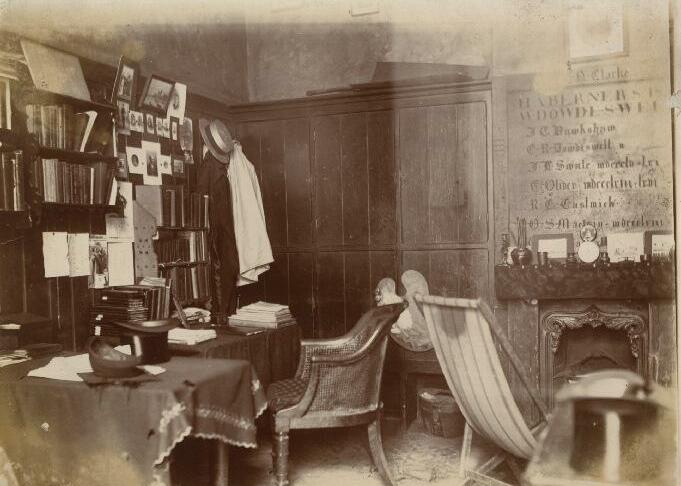
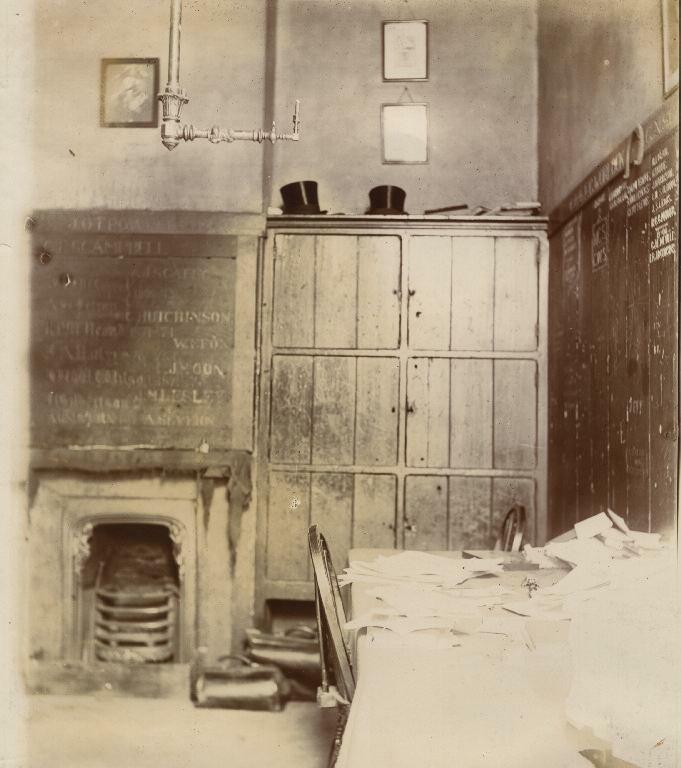
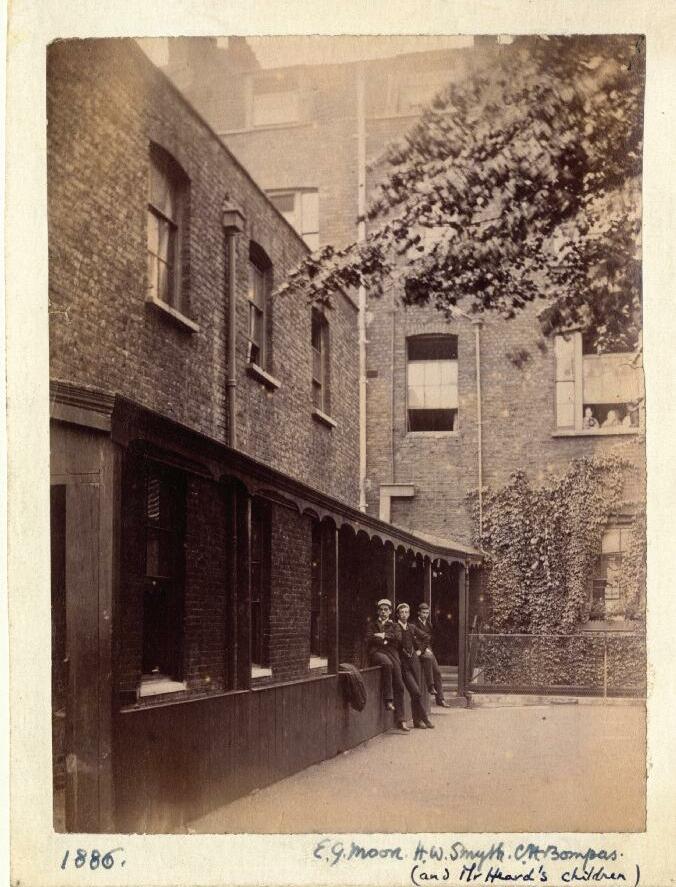
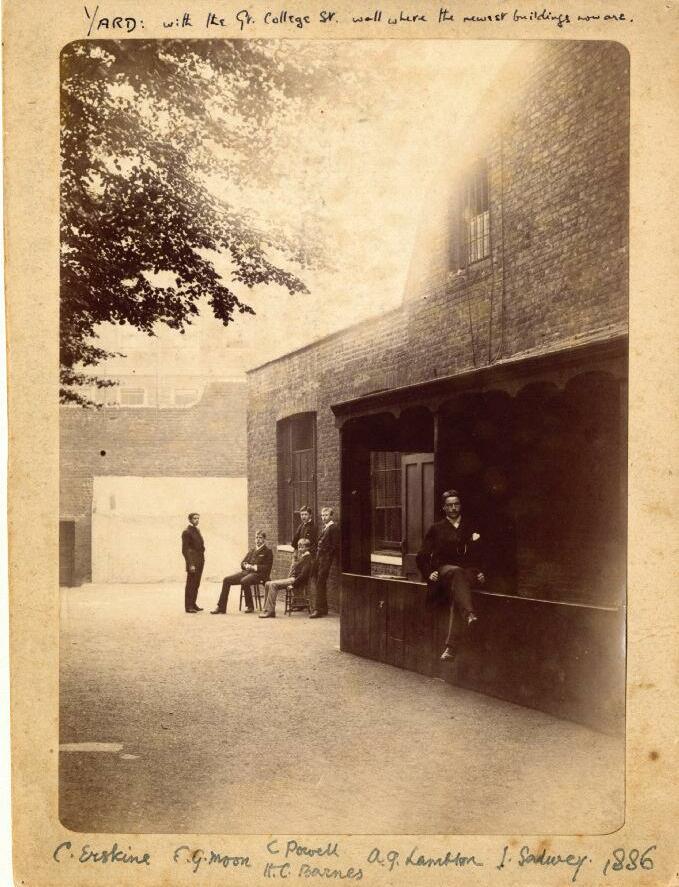
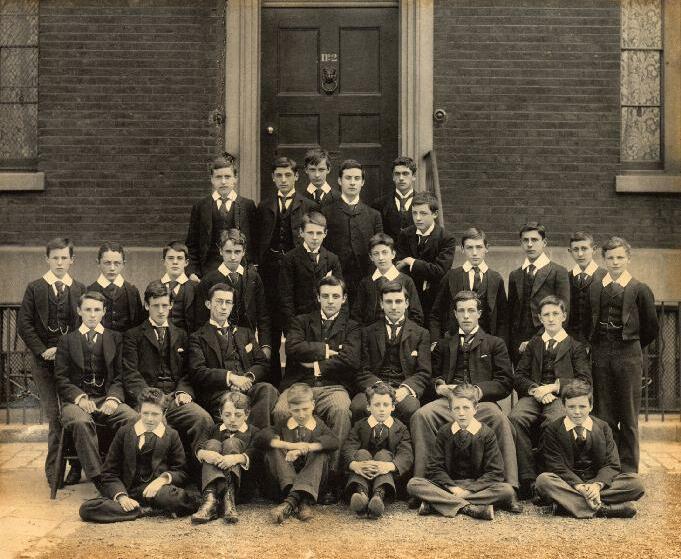
5 2
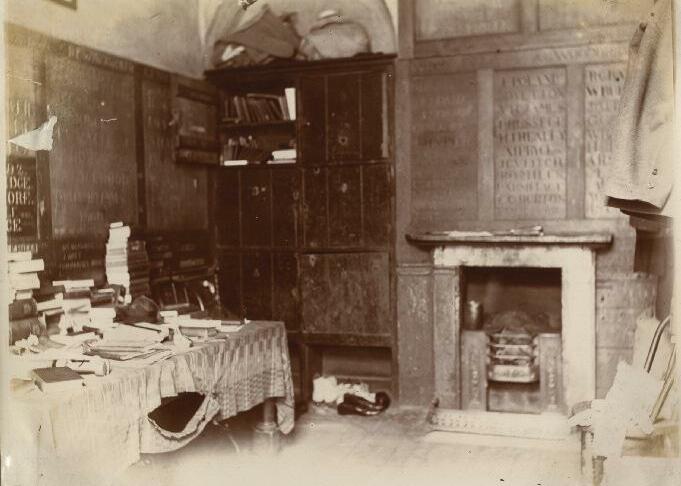
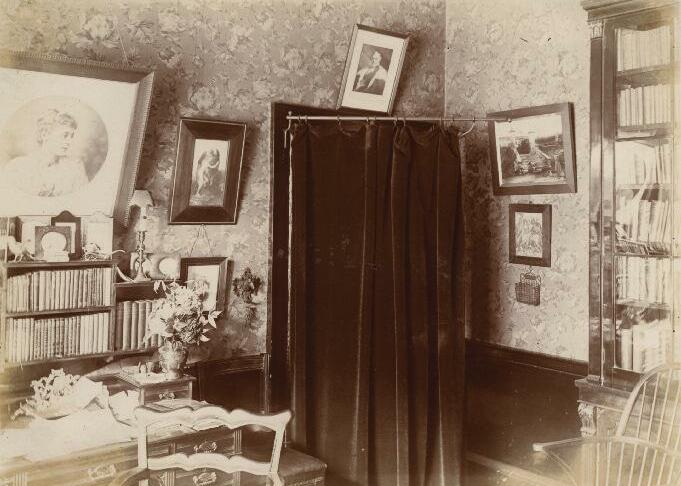
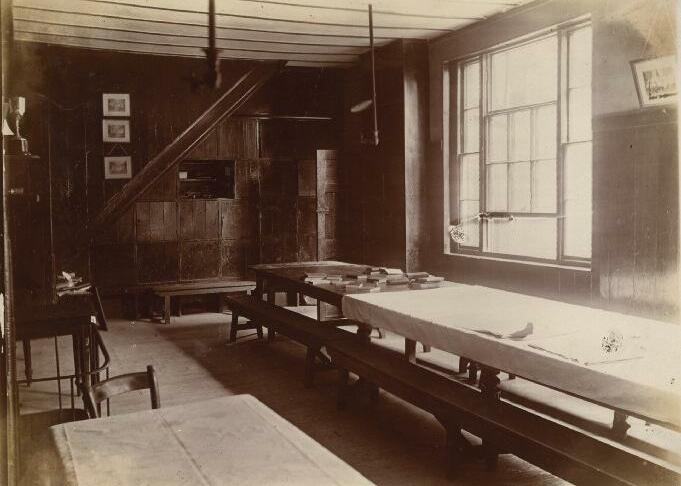
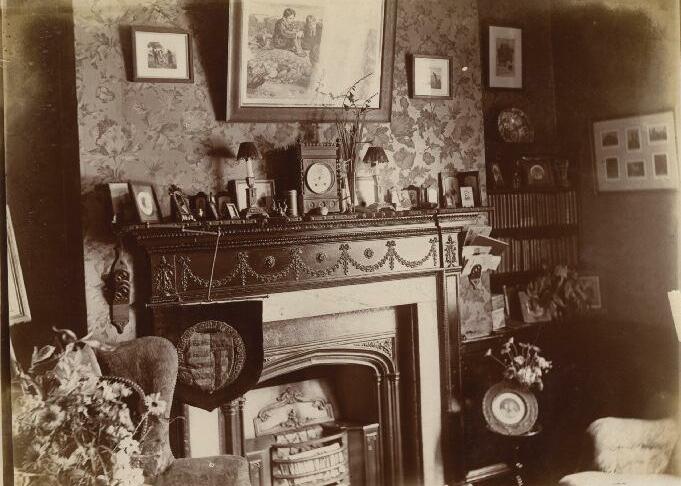
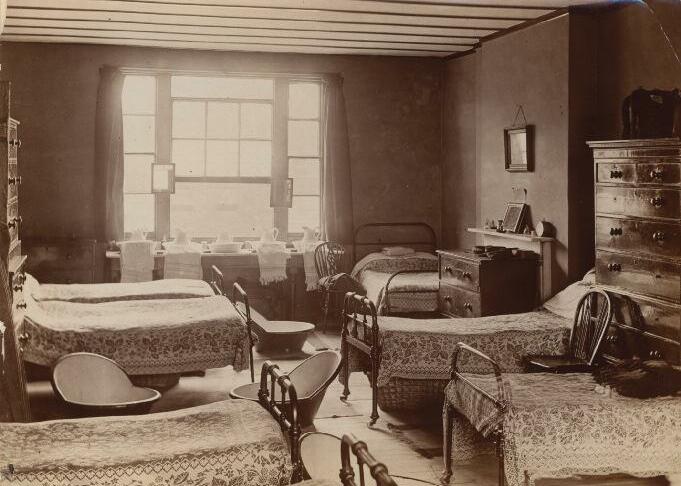
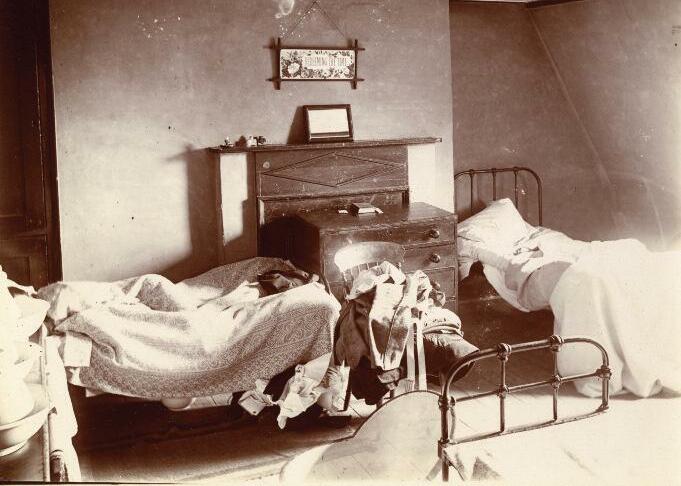
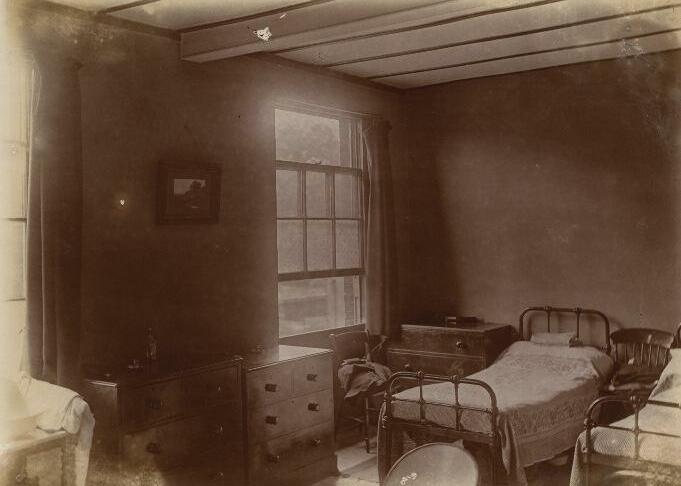
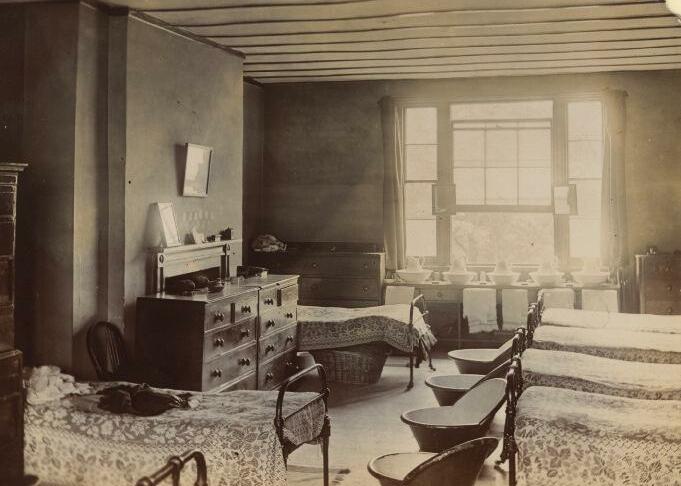
5 3
Grants in 1903
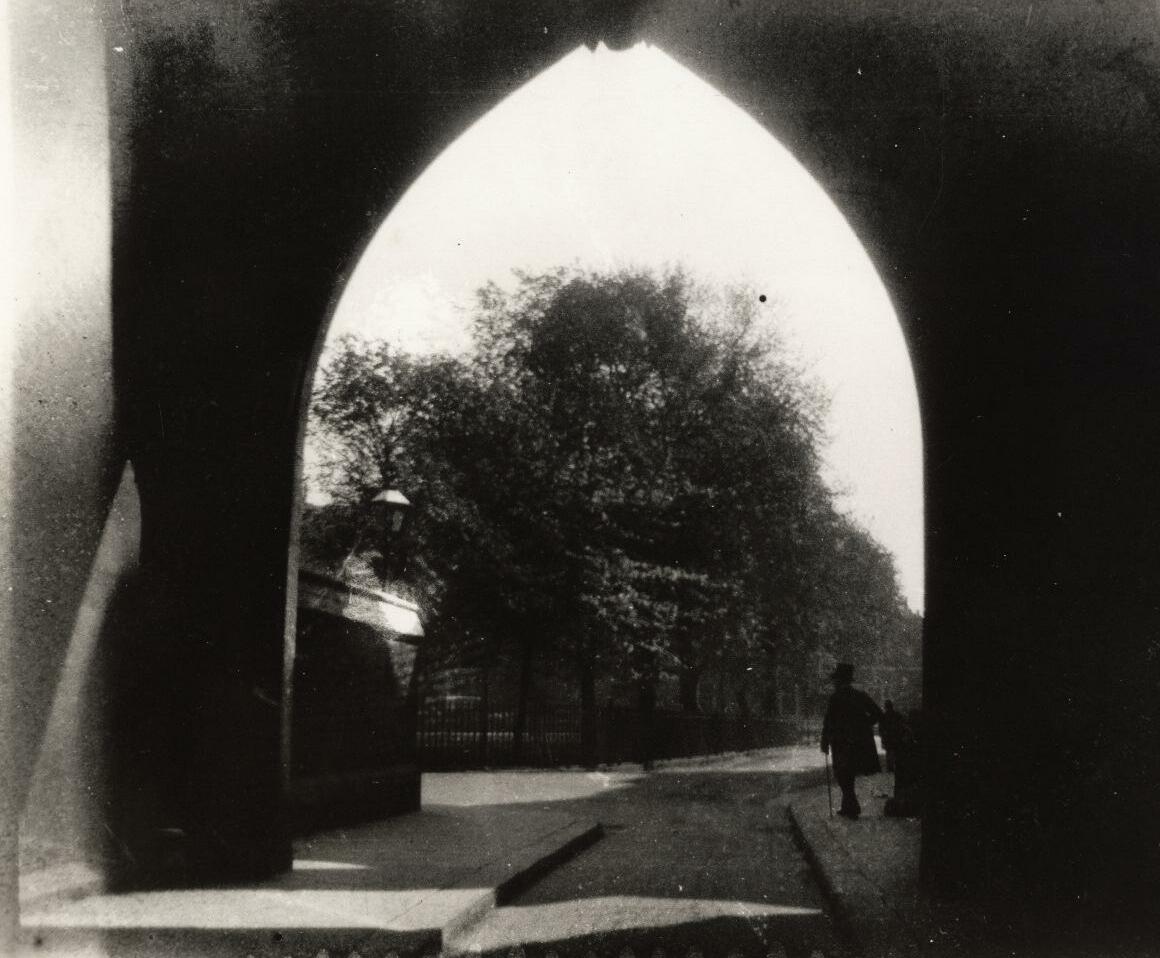

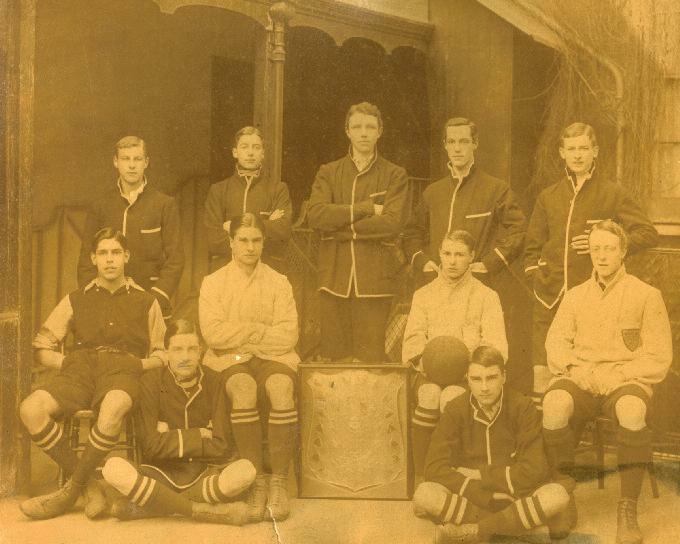
5 4
The House Master, Ralph Tanner, walking through the arch of Dean's Yard. Adrian Boult took the photo
Grants in 1953
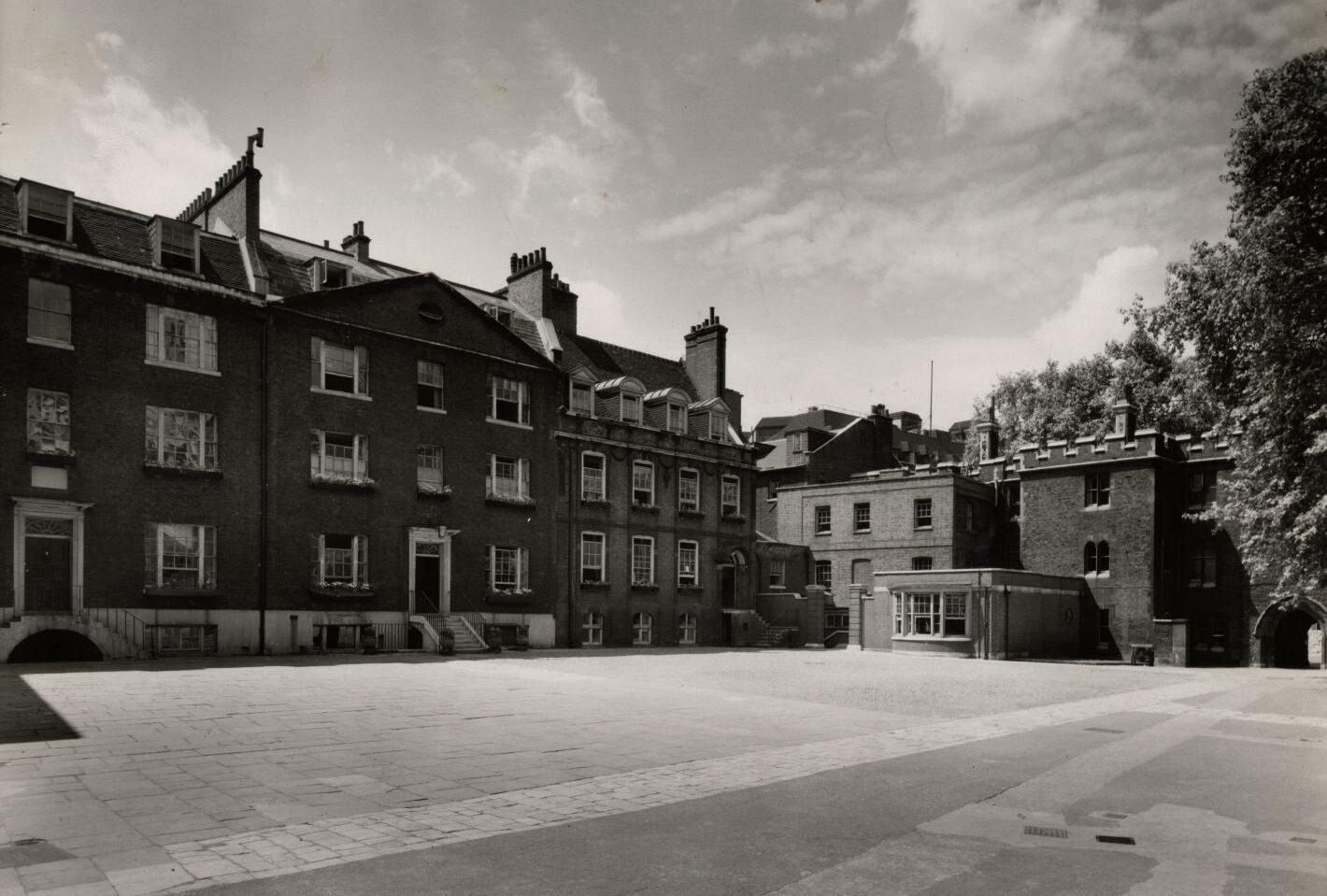
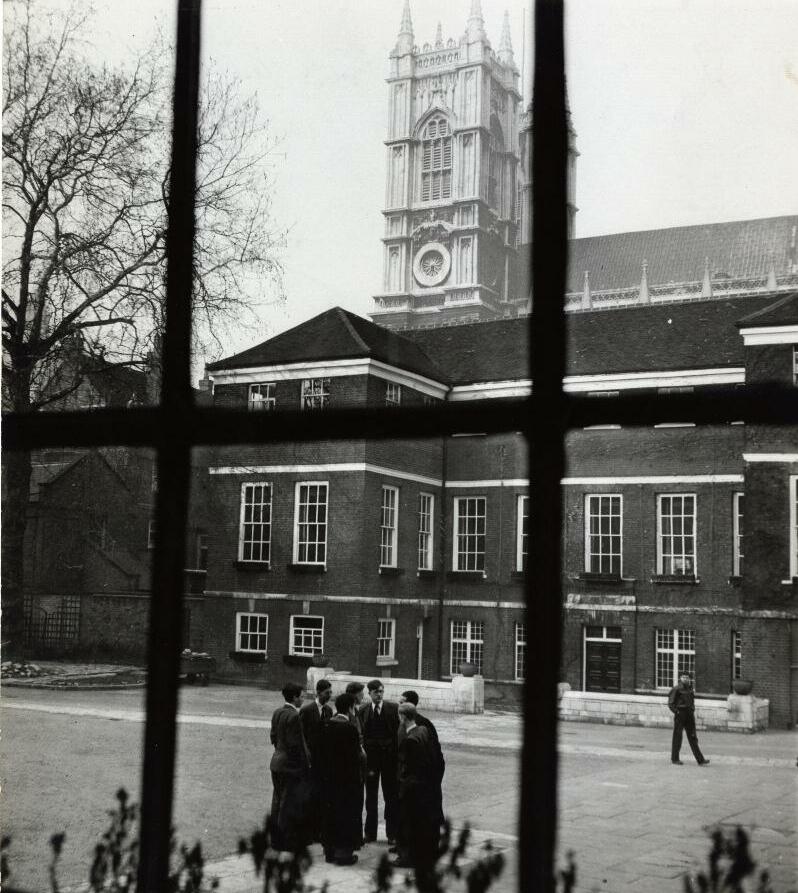
5 5
Grants in 1980s
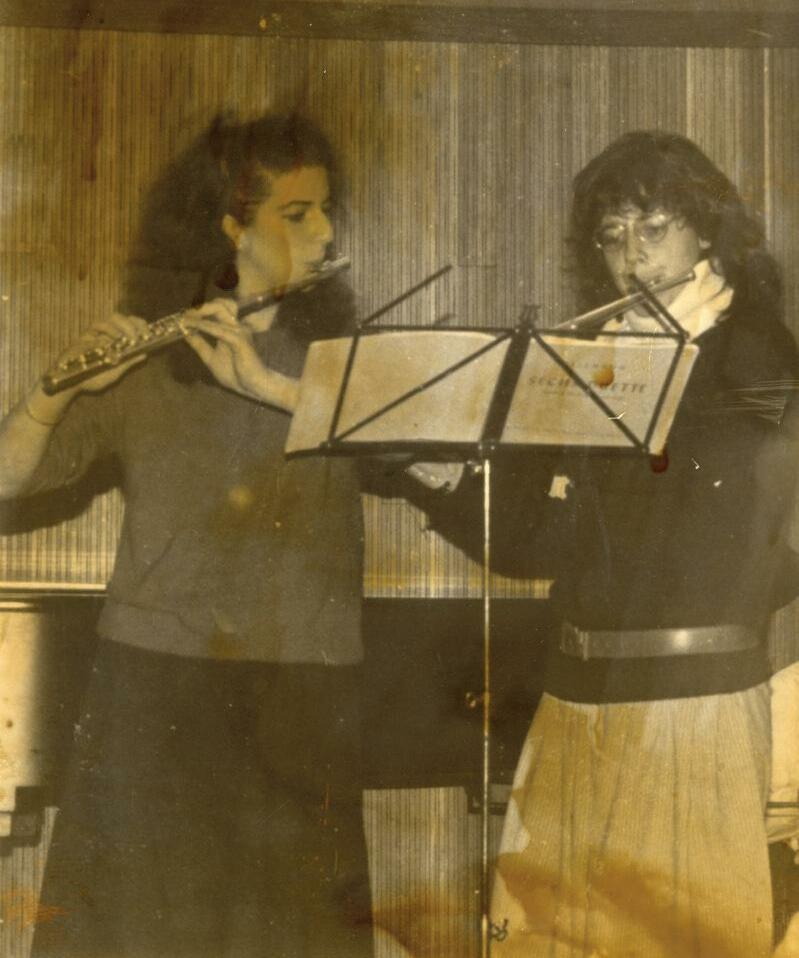
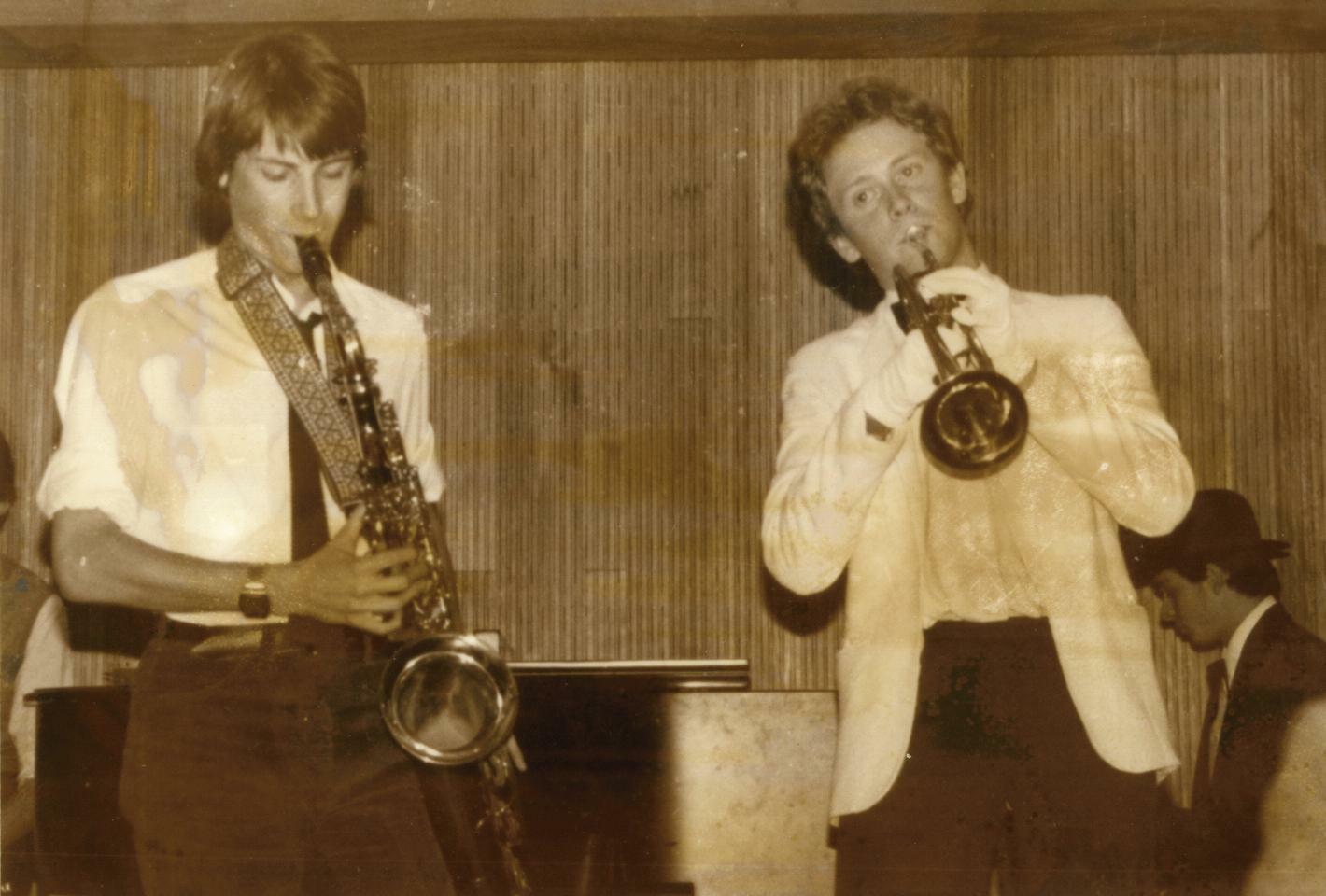
5 6
Grants in 1986
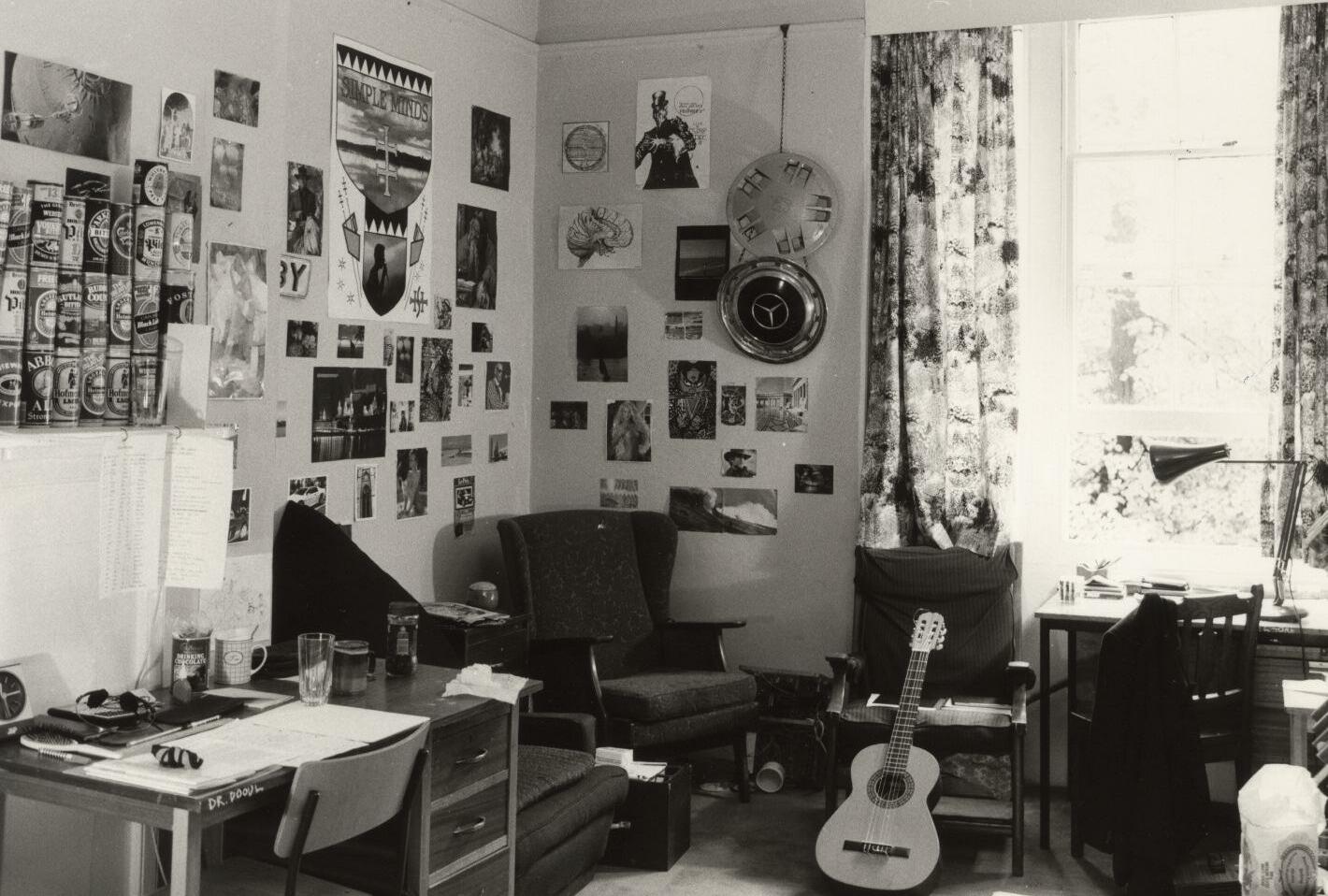
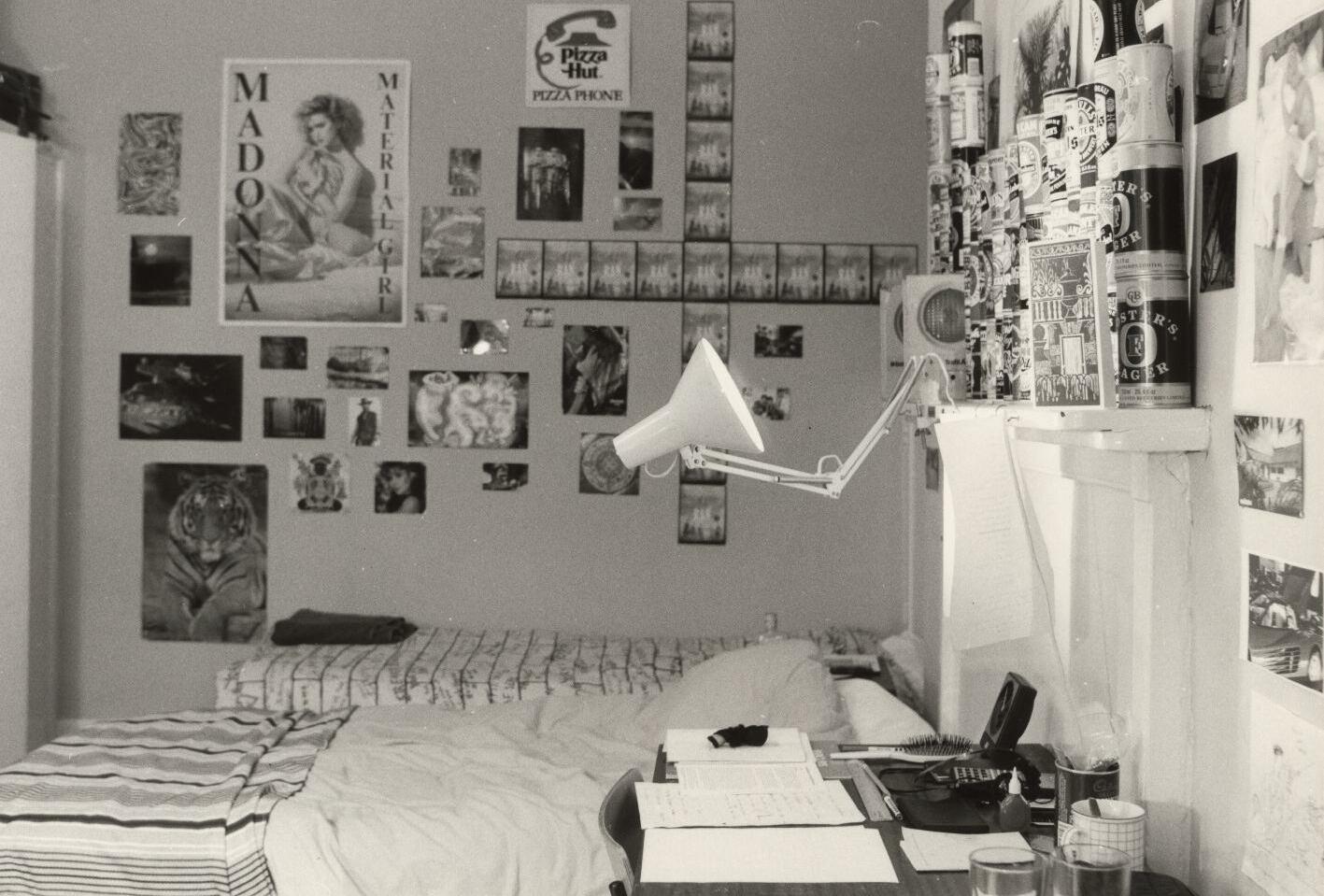
5 7
Grants in 1986
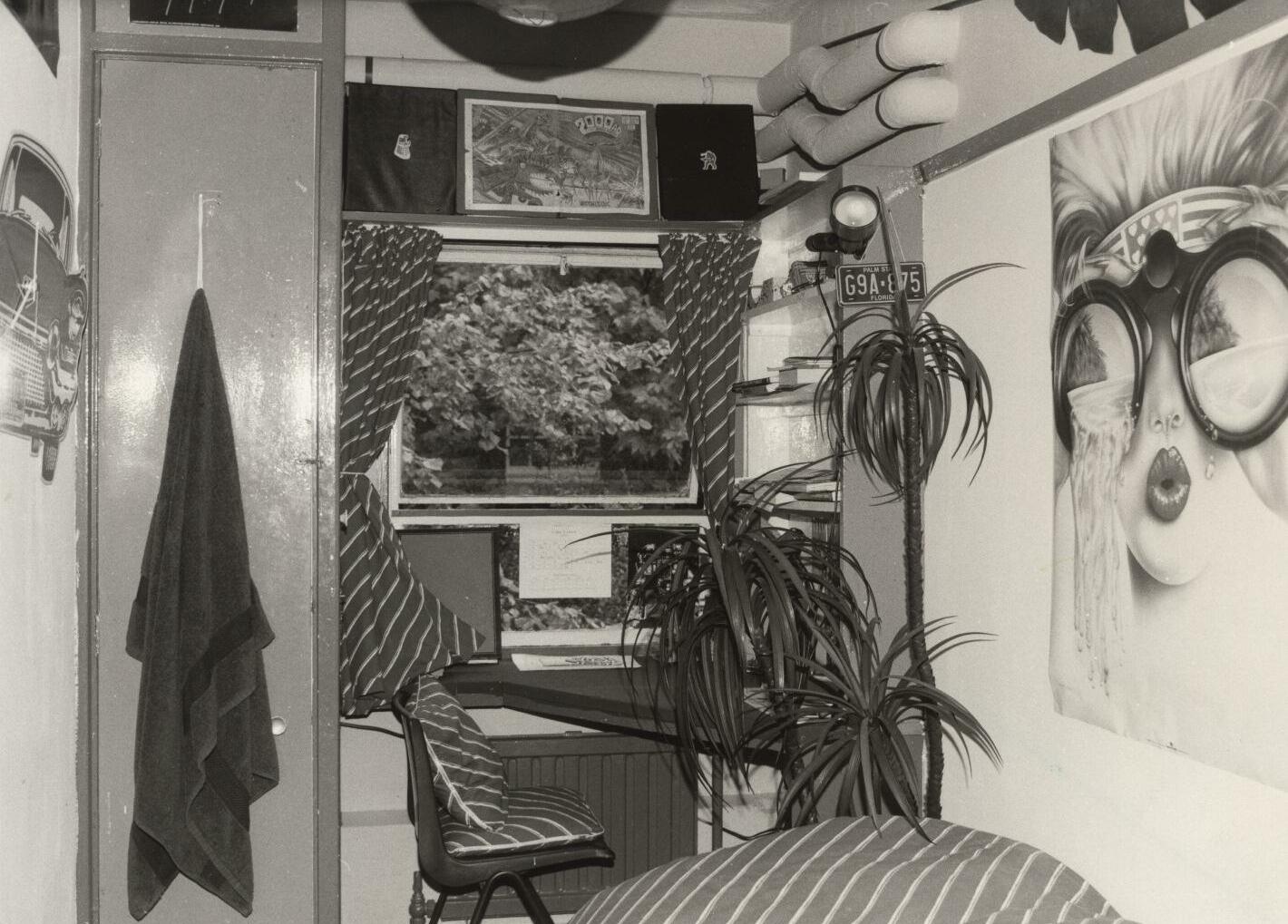
Grants in 1990s
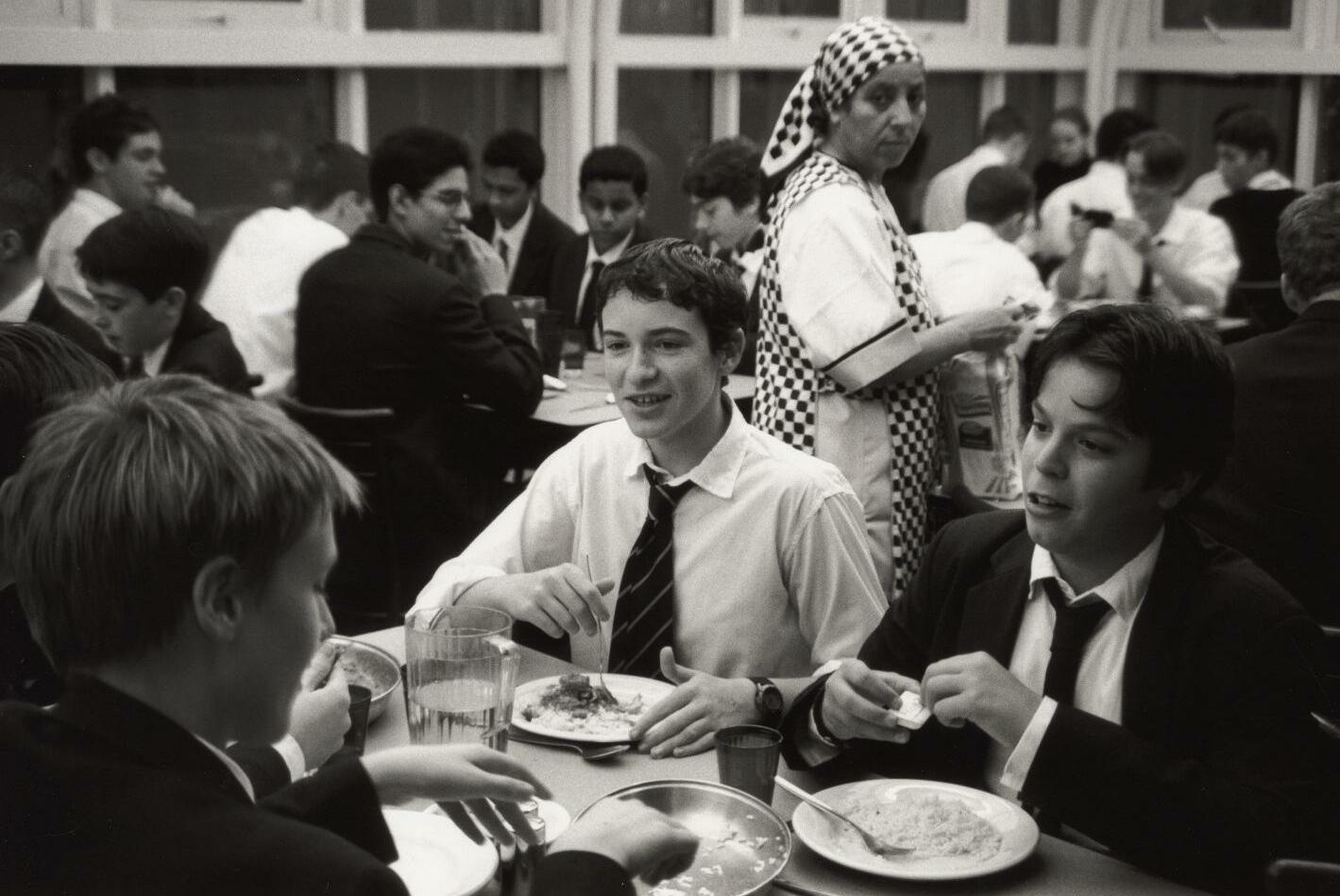
5 8
Grants in 2022
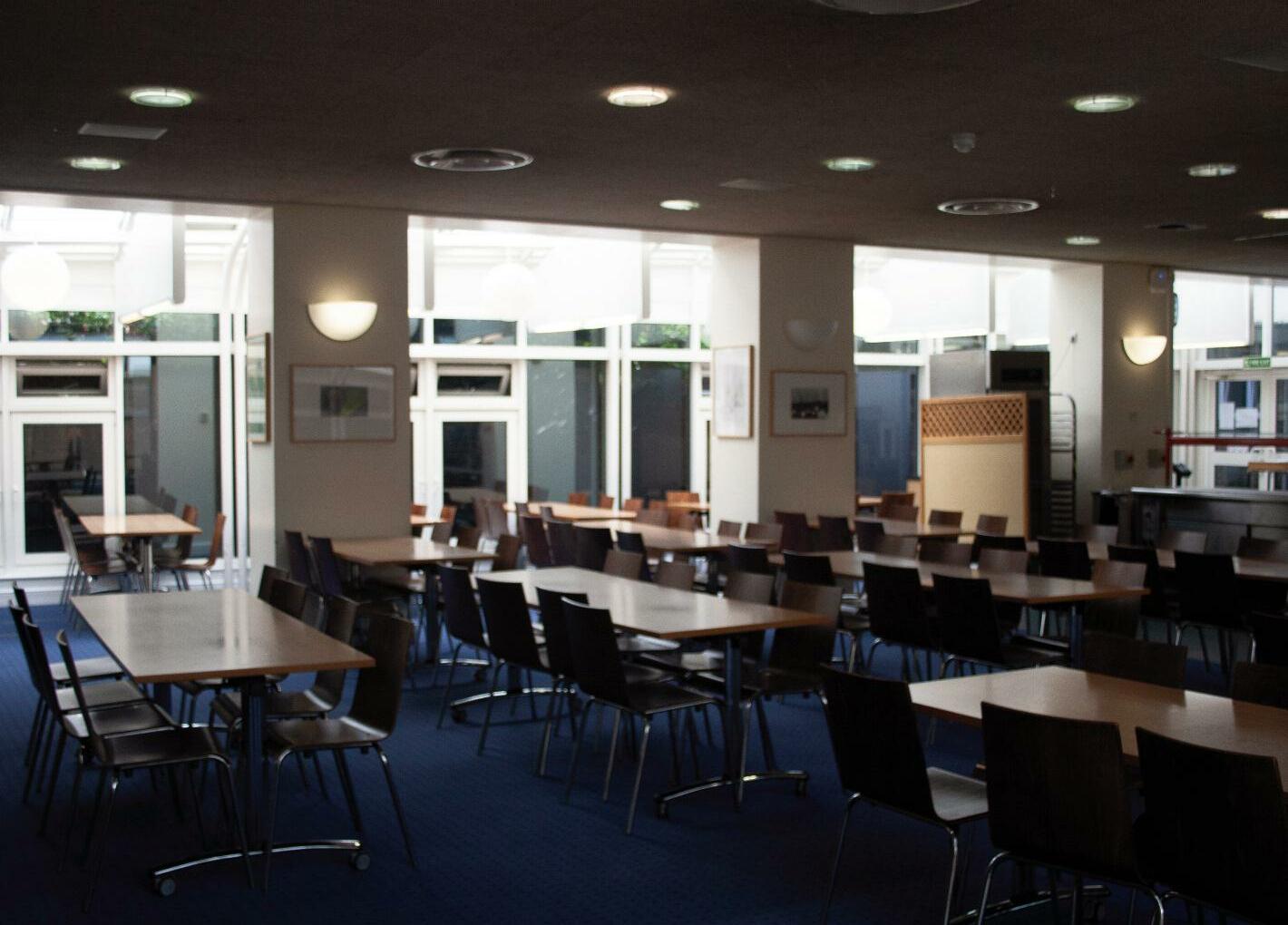
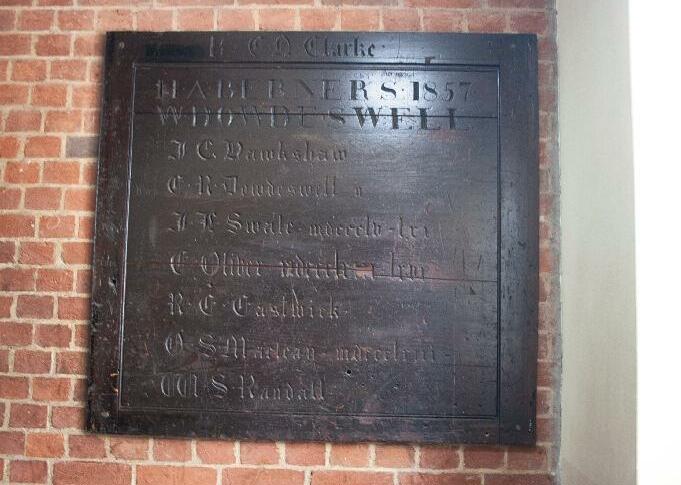
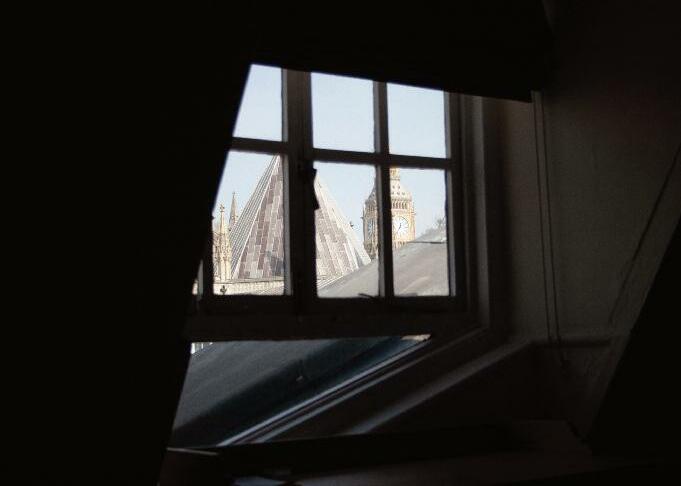
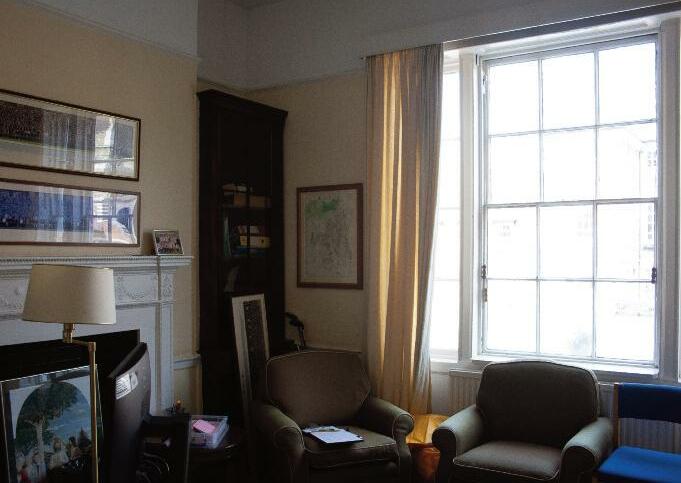
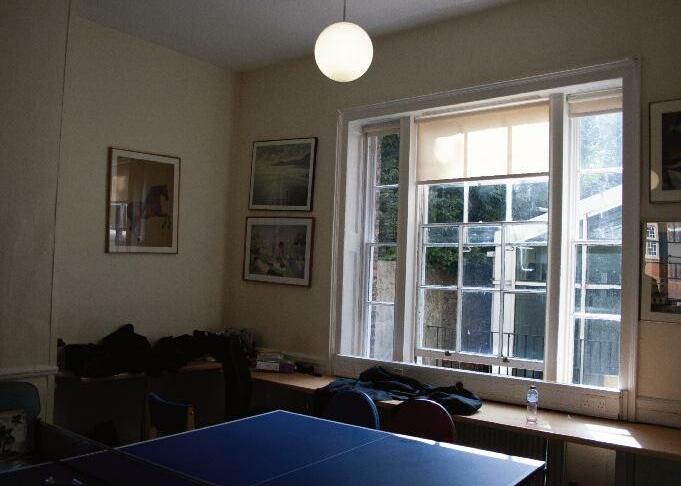
5 9
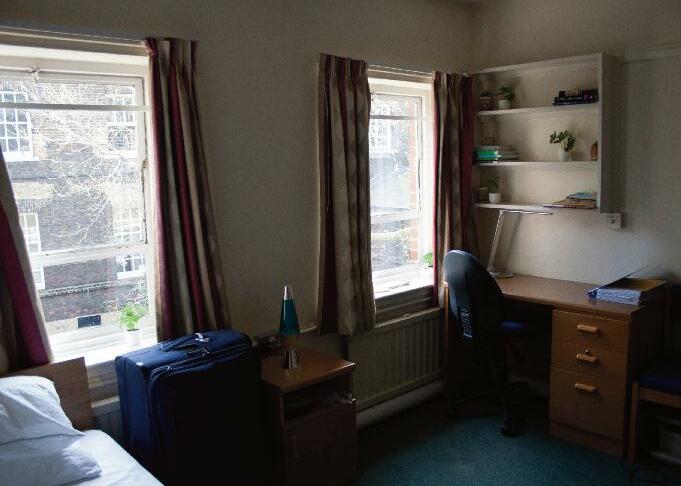
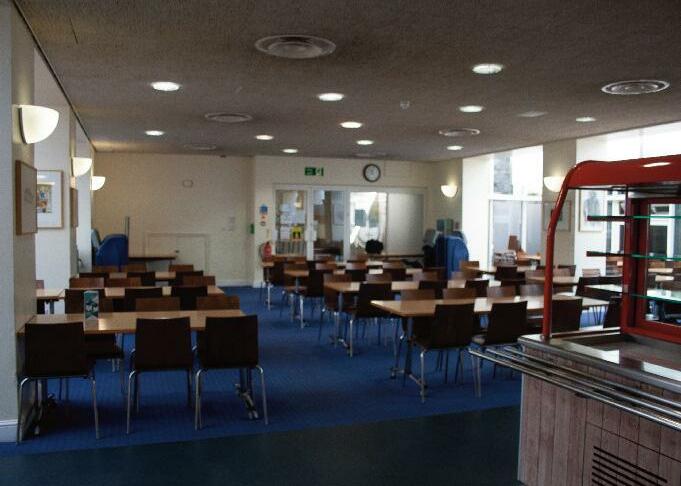
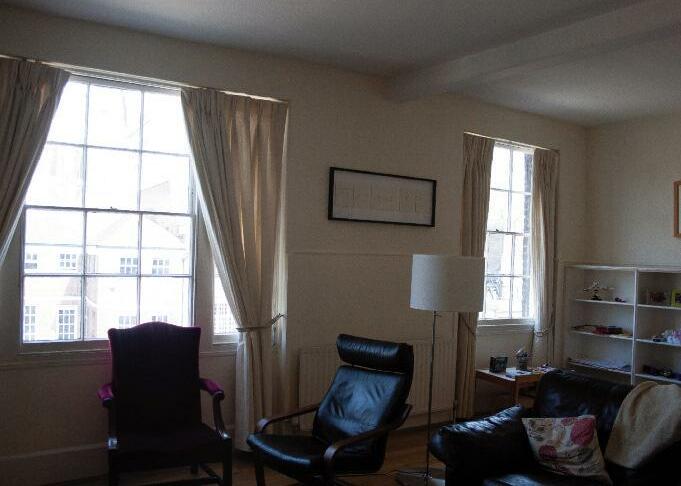
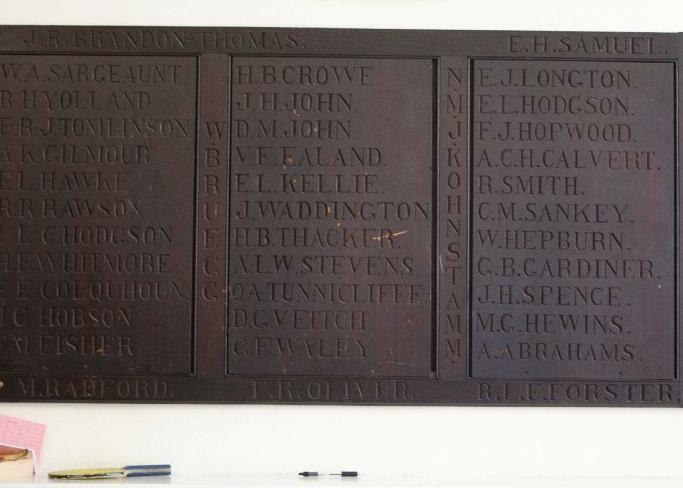
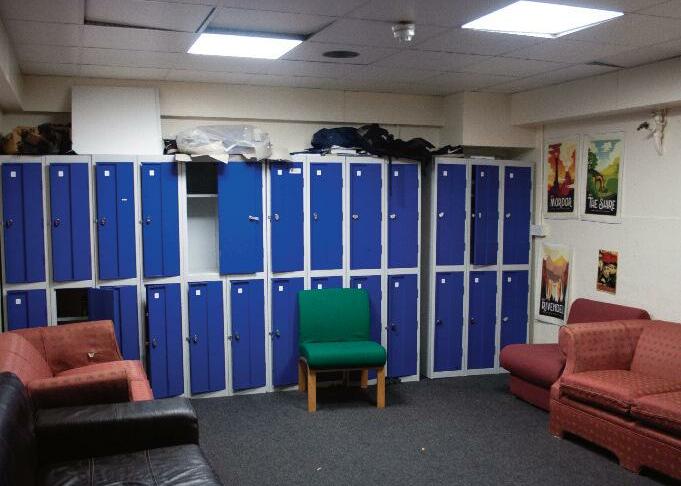
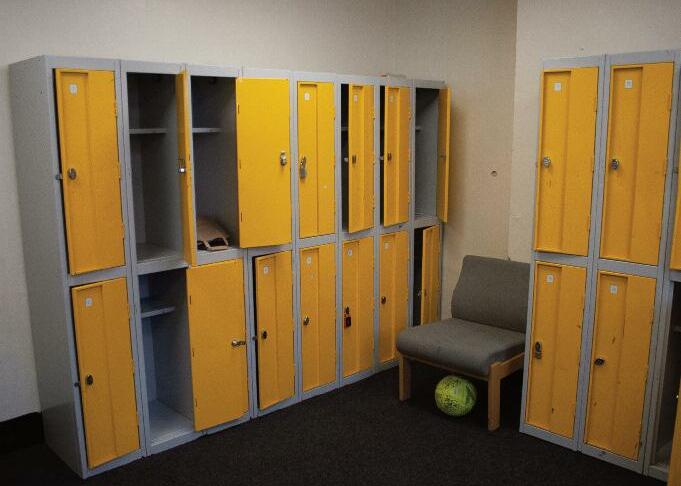
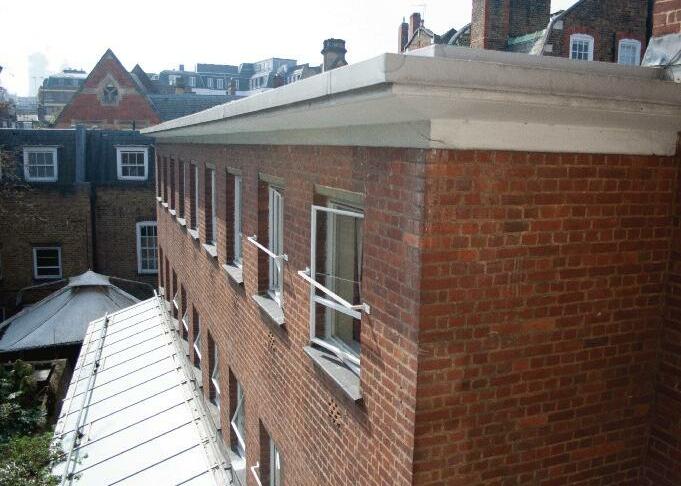
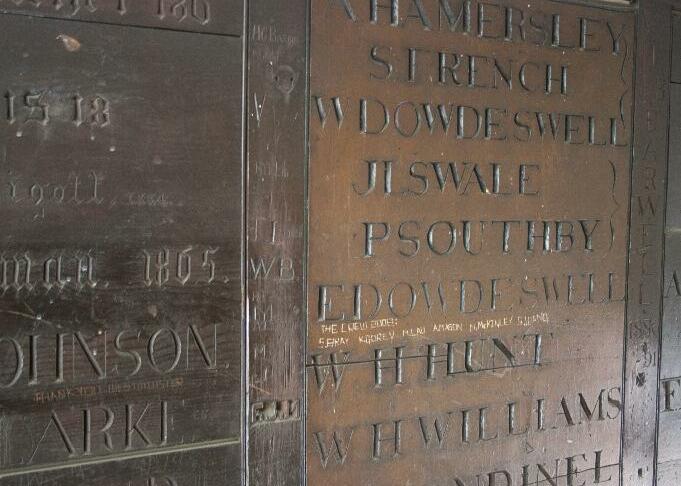
6 0
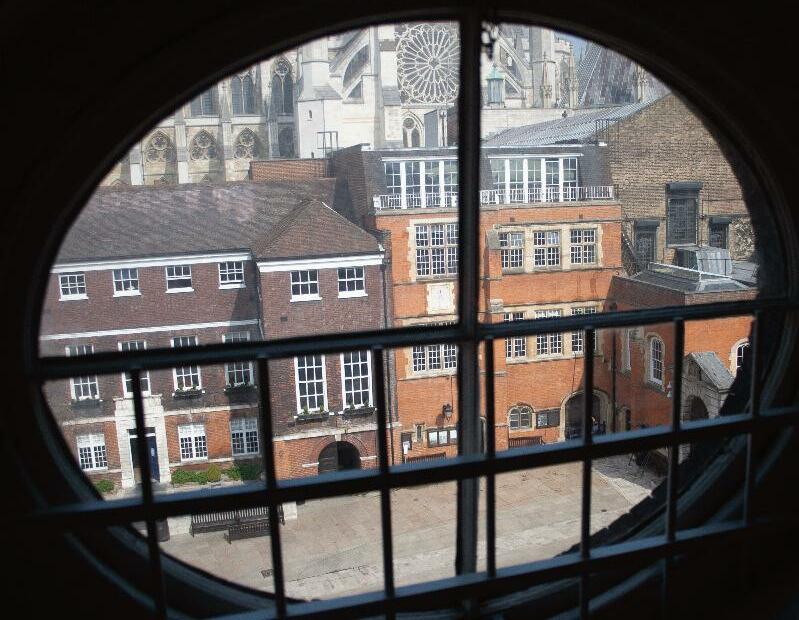

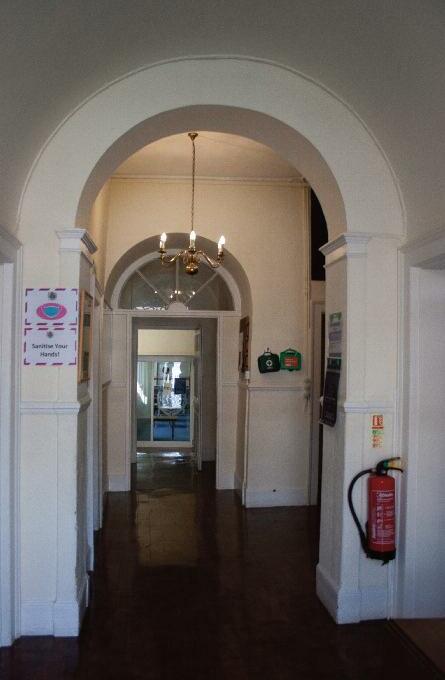
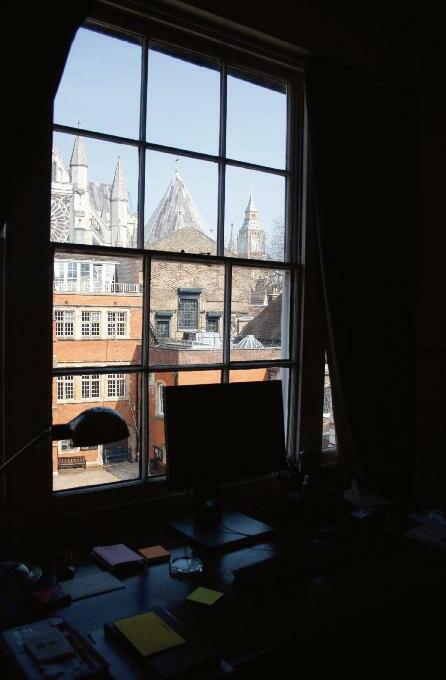
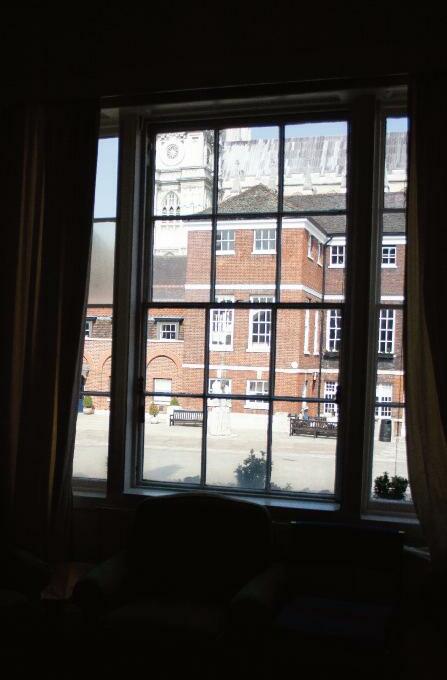
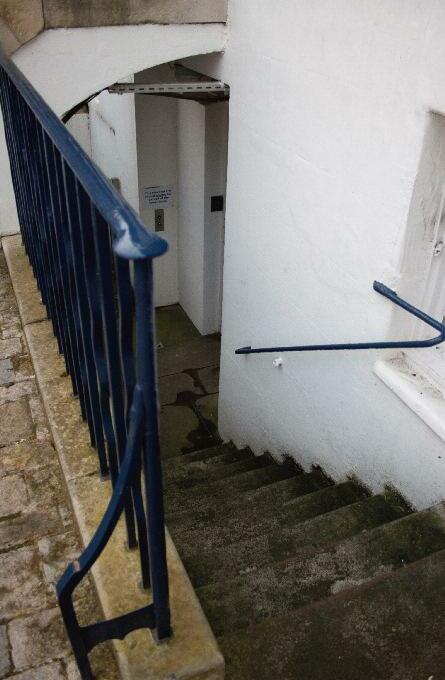
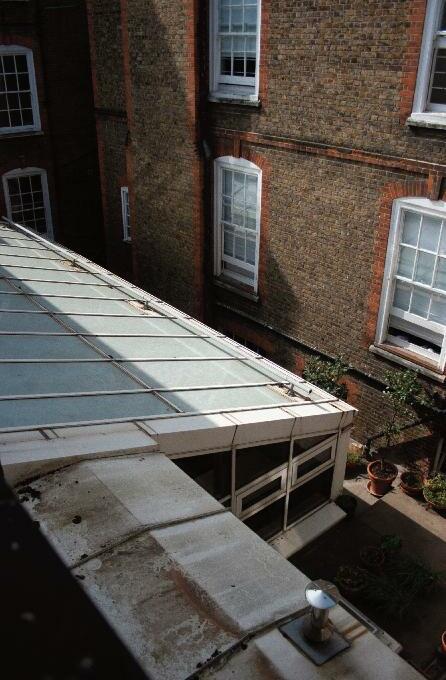
6 1
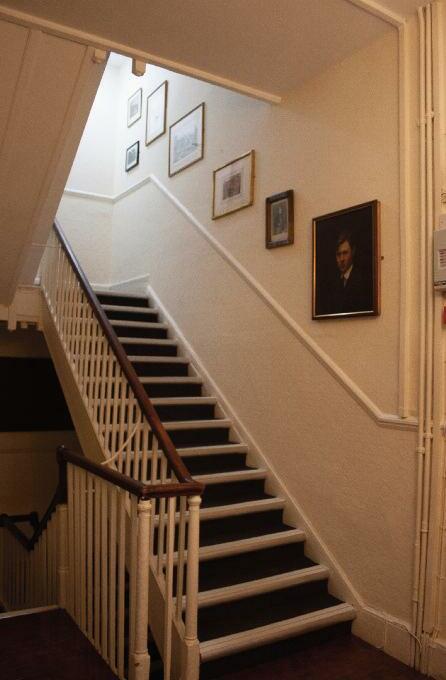
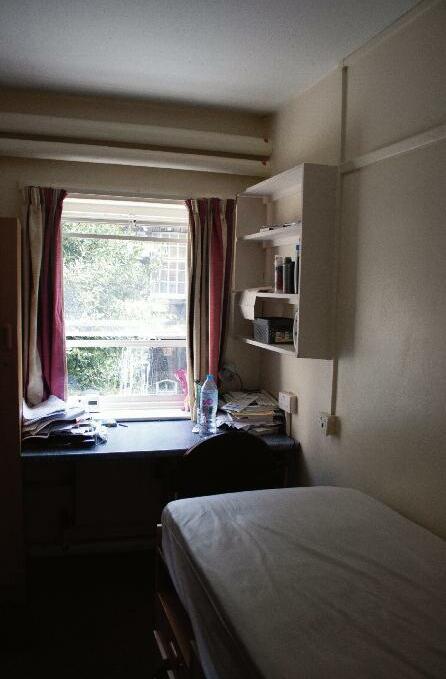
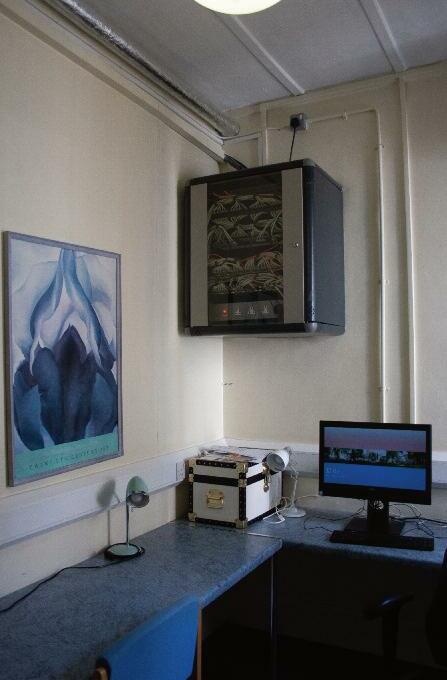
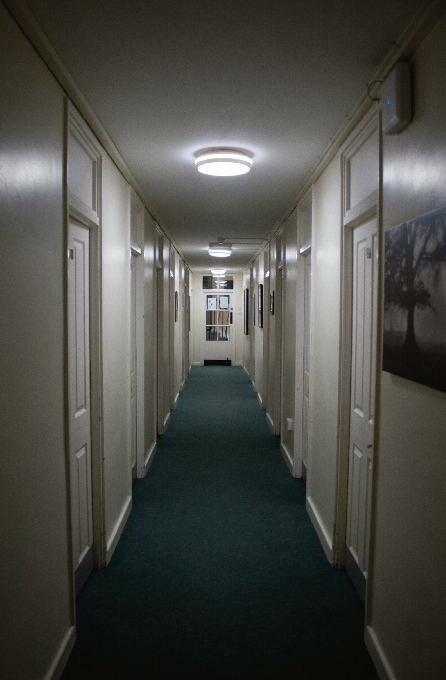
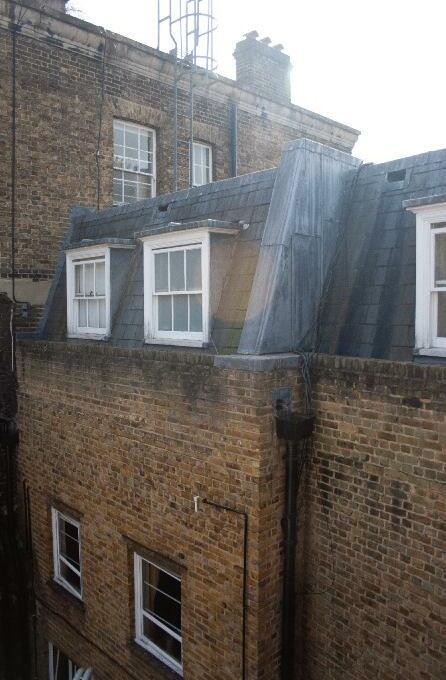
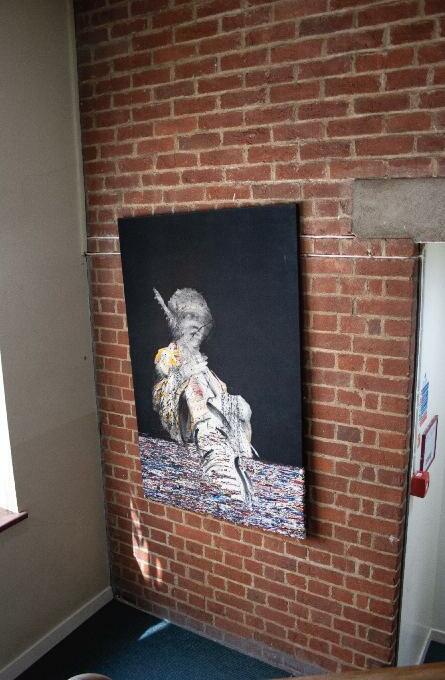
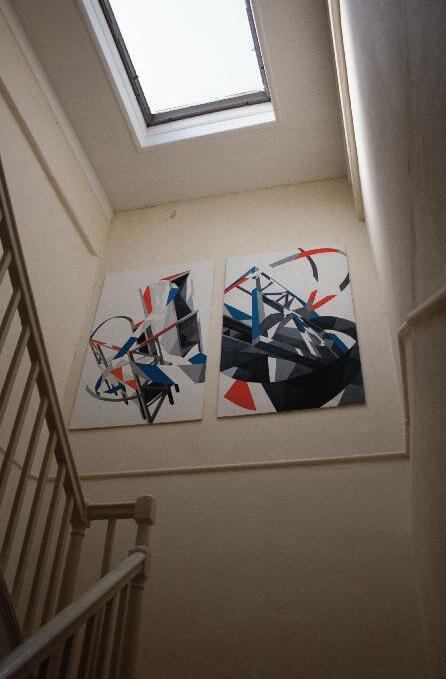
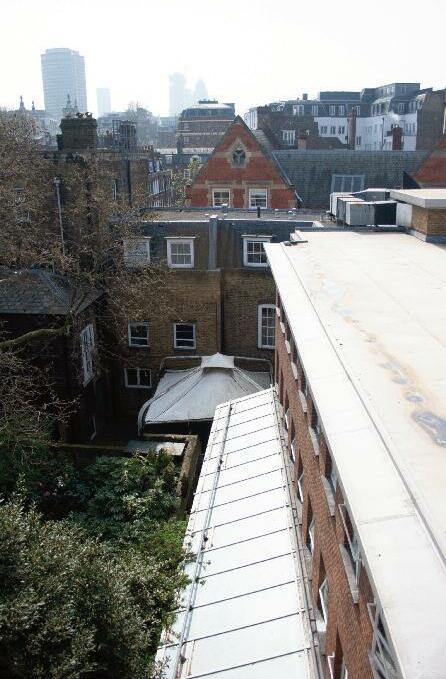
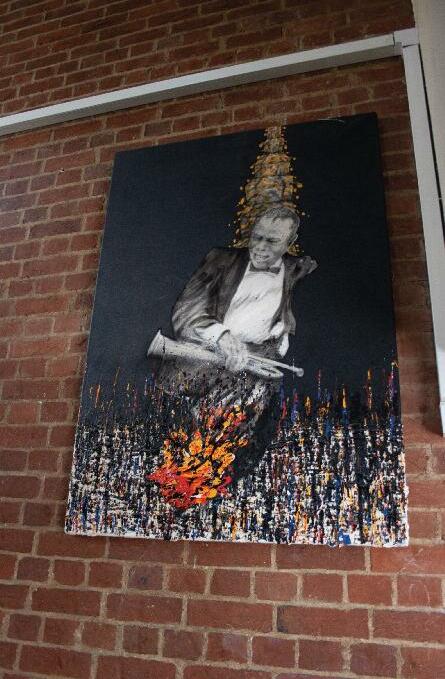
6 2
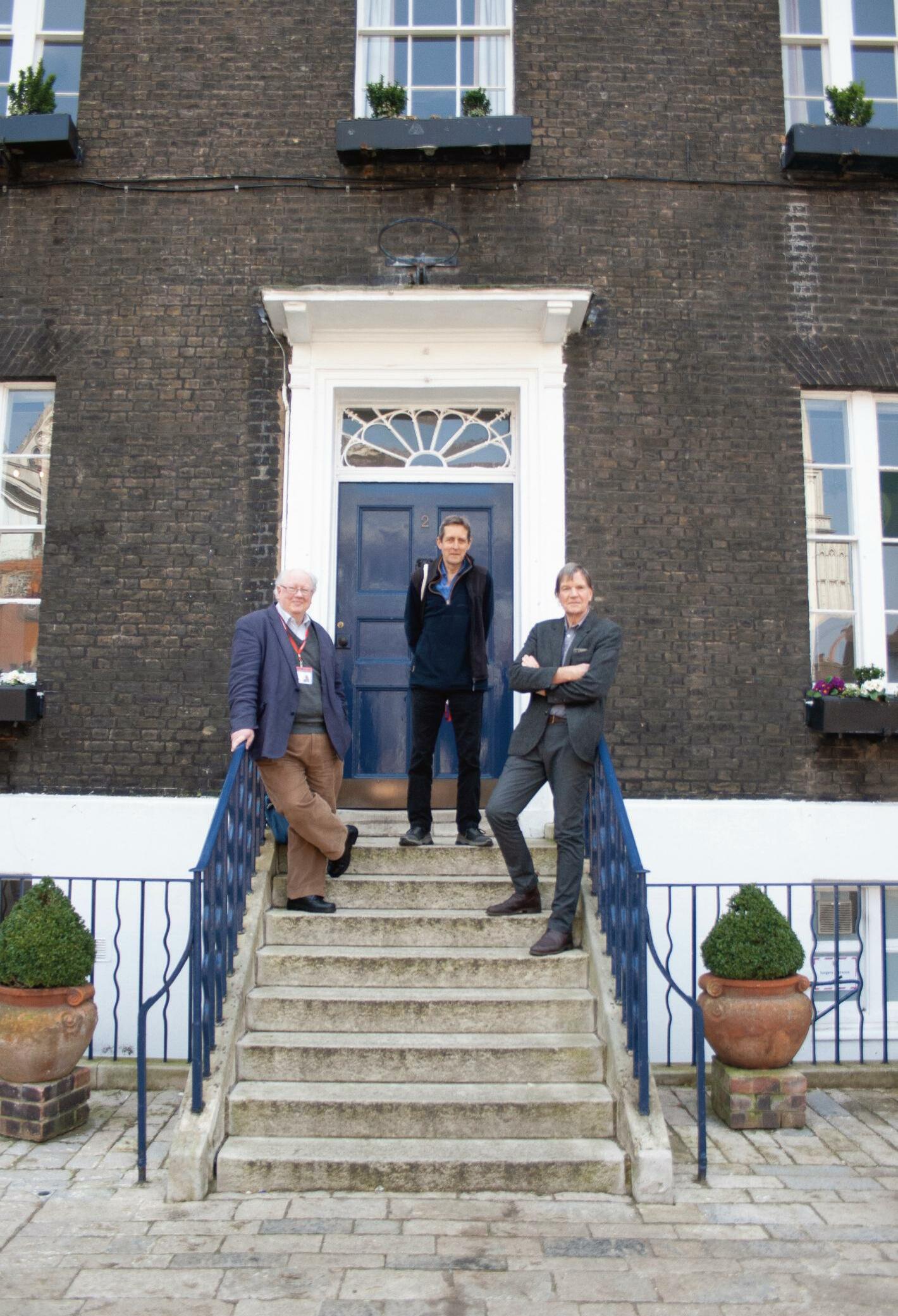
6 3
The team for this edition: Simon Mundy, Tim Woods and Paul Hooper
Grants House Masters

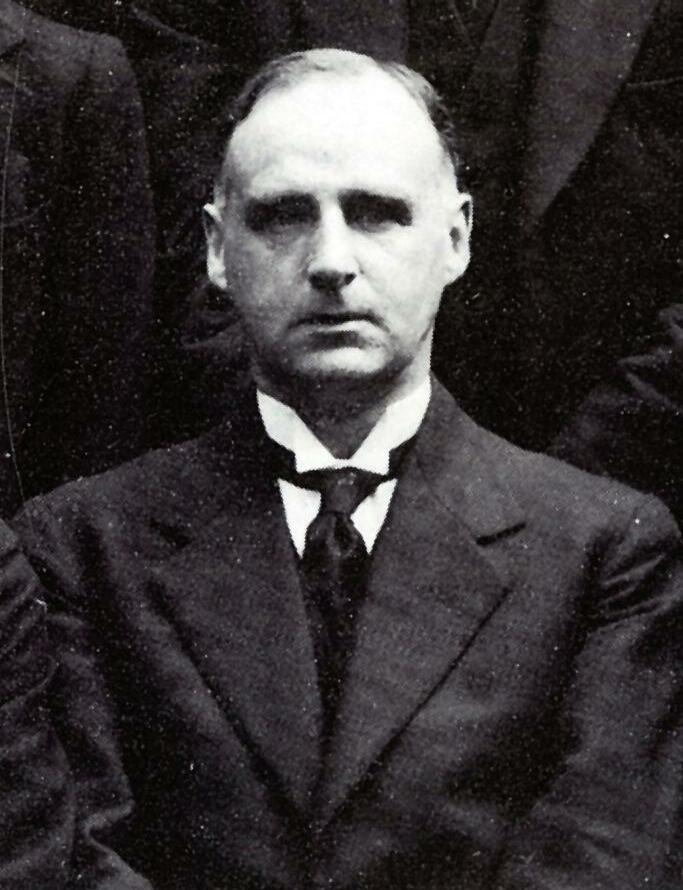
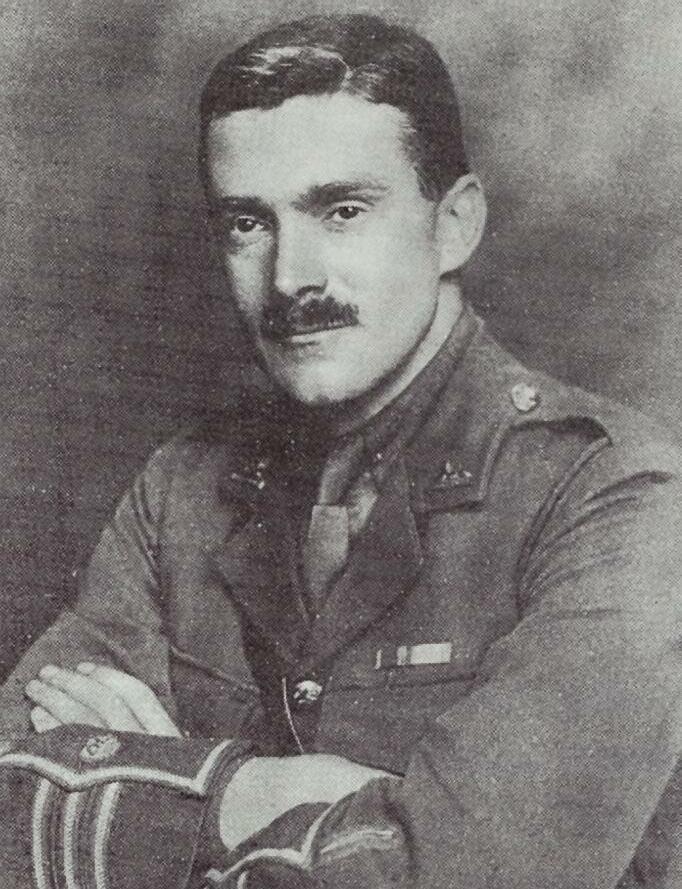

6 4
Ralph Tanner 1890-1919
Major Patrick Shaw DSO 1919-1924
Arnold Theodore Willett (OW) 1924-1935
Thomas Moray Murray-Rust 1935-1948
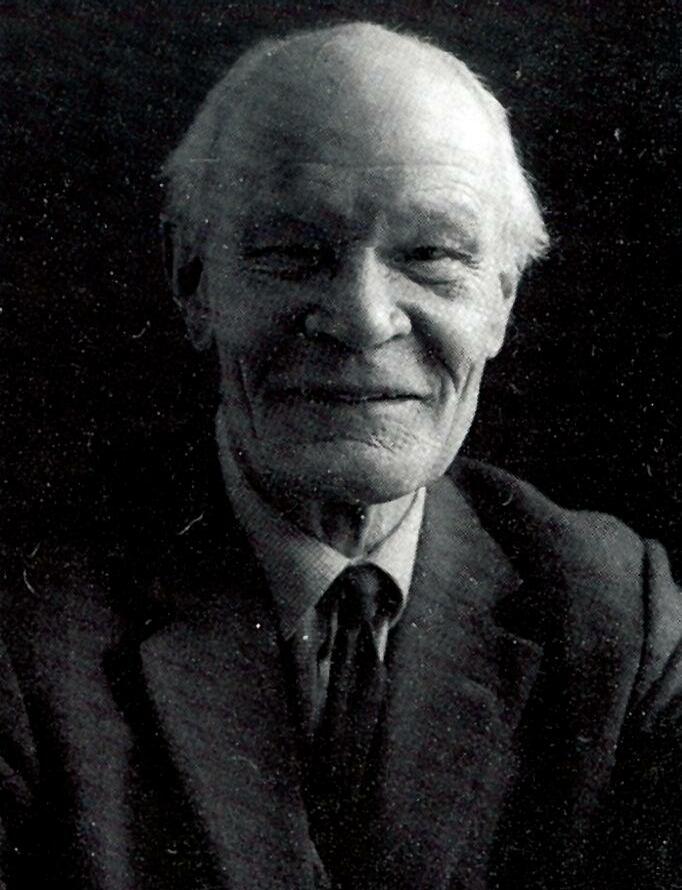
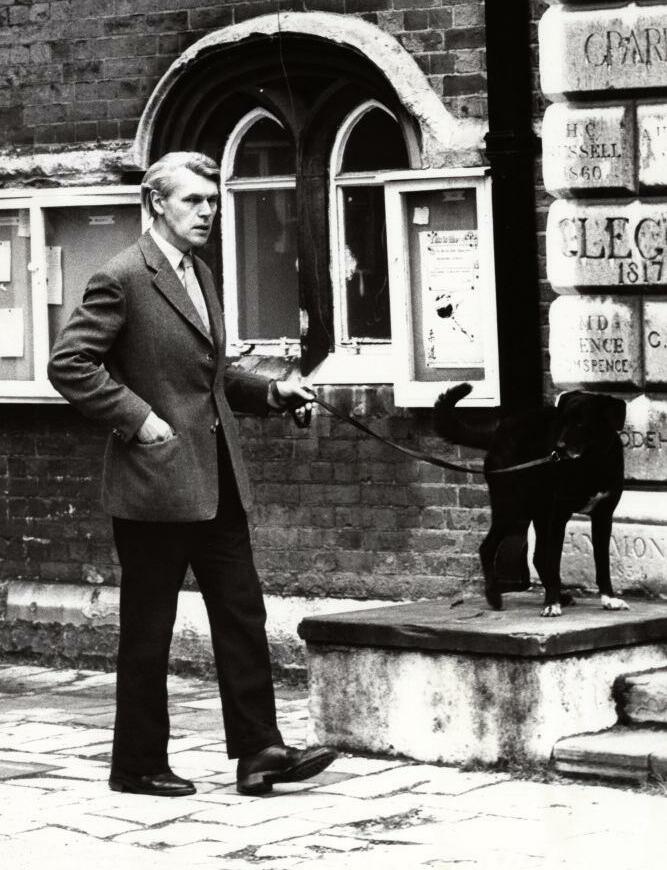

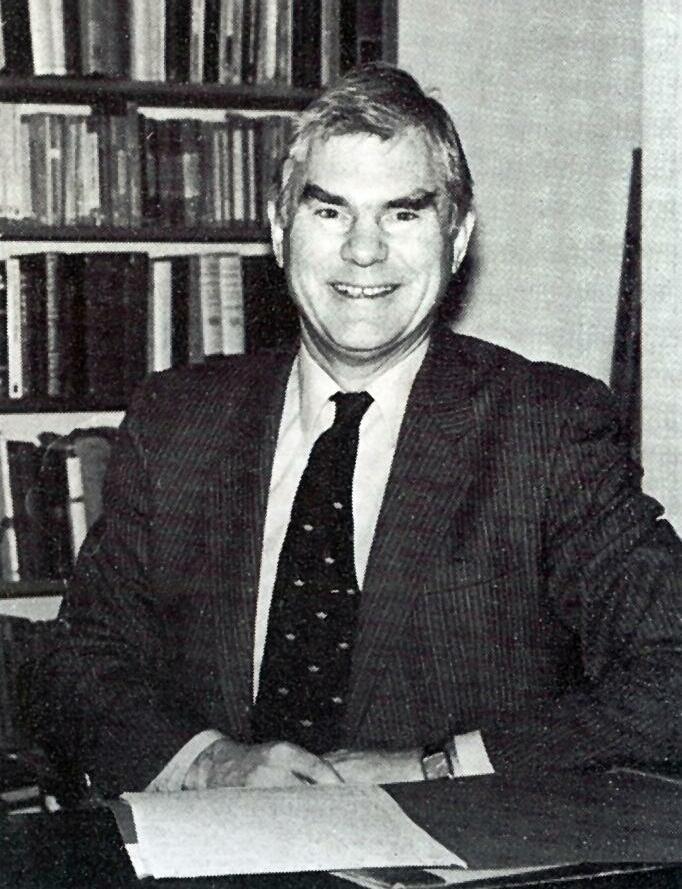
6 5
John Morton Wilson 1948-1963
Denison Saumarez Brock (OW) 1963-1969
David Michael Cospatrick Hepburne-Scott 1969-1979
John Stephen Baxter 1979-1986

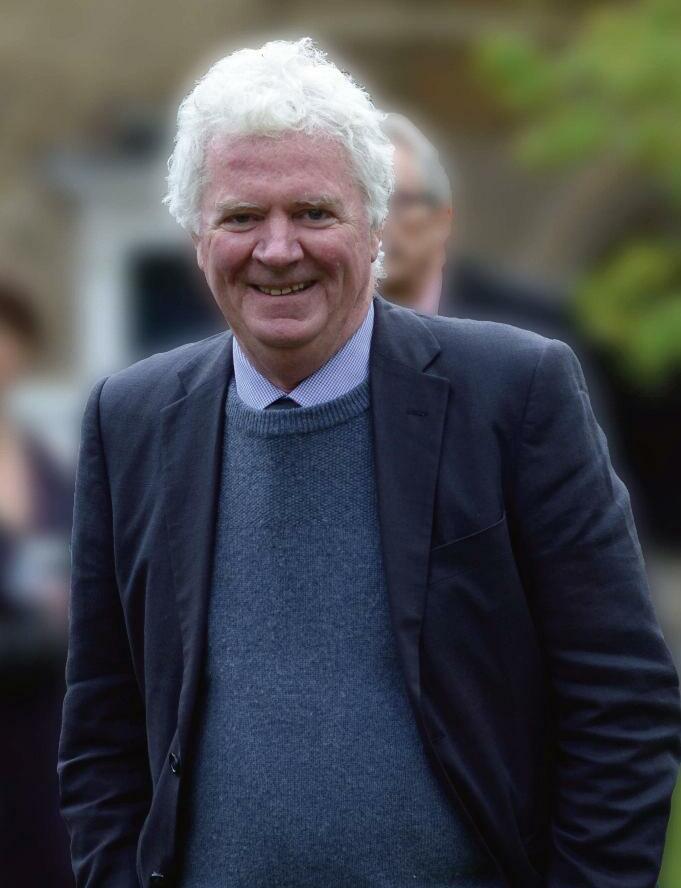

6 6
Gavin Griffiths 2000-2007
Christopher Clarke 1986-1996
David Llewellyn Edwards 1996-2000


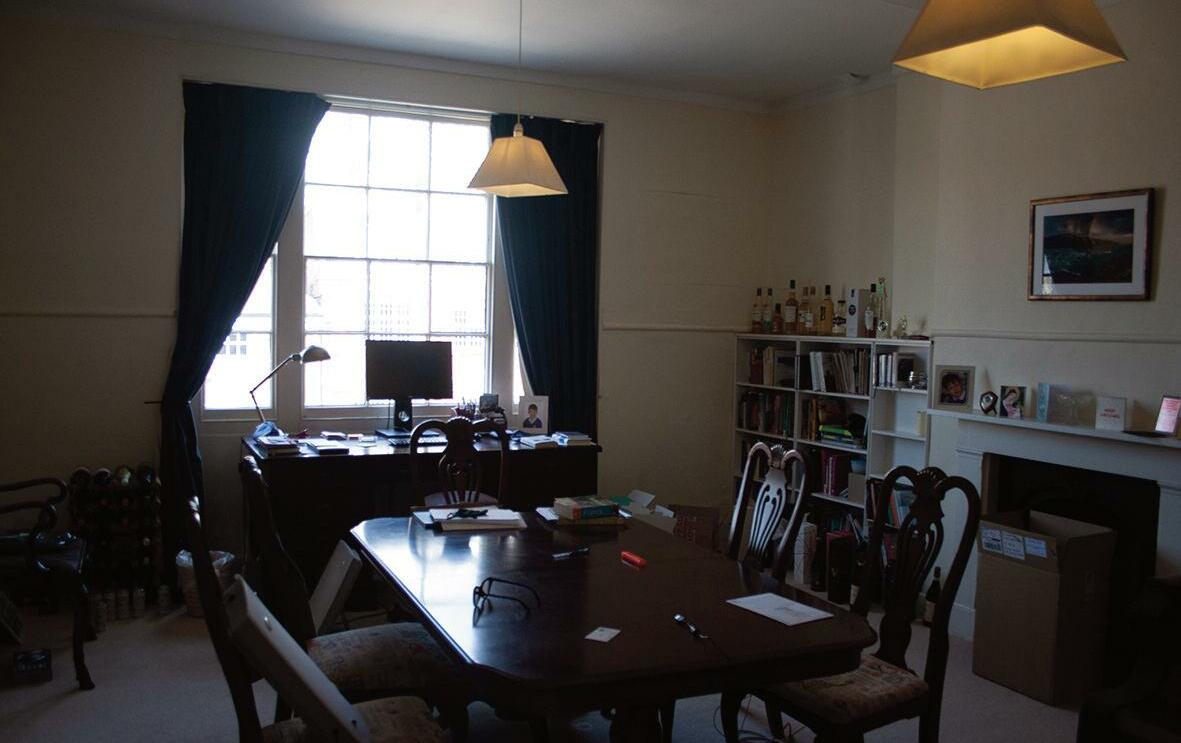
6 7
Peter David Hargreaves 2007-2014
Nicholas Allan Fair 2014-
The first meeting of the Club was held on Shrove Tuesday, February 1926, but unfortunately the first minute book is missing and for the early days of the Club we have to rely on the recollections of some of those who were then members. Mr. W.N. McBride was appointed Honorary Treasurer and Secretary, and the first President was Sir F. Villiers Forster, Bart., who was selected as being about the oldest living Grantite at the time, having entered the House before 1860. The first Dinner was held in the autumn of 1926 at the Florence Restaurant, Rupert Street, when about thirty or forty members attended. After dinner the Club entertained itself on the lines of Play Supper, the stars being Mr. Jevan Brandon Thomas (Head of House in 1916/17, son of the author of Charley’s Aunt) who gave true-to-life caricatures of many of the masters of the School at that time, and Mr. Norman Andrews (Head of House in 1917/18) who gave a first class baritone rendering of Shipmates o’ Mine The President, who was Master of the South Staffordshire Fox Hounds, is recorded as having come to at least one of the earliest Dinners straight from the hunting field although at the time he was over eighty.
The present series of minute books start in September 1930. They begin on a promising note, however, in that in view of the ever-increasing funds of the Club the Secretary was at that Meeting empowered to hire an entertainer (not exceeding £20) for the forthcoming Annual Dinner. In March 1931 it is recorded that the Honorary Treasurer “made a half-hearted statement of account but hoped for the best, and his optimism was accepted”. There were also rumours that Mr Willett required £50 to convert Grants into a Turkish Bath, and it was decided that the Secretary should “sleuth for the truth”. At the same time, the Club made its first gift, being the sum of £25 to Elson on his retirement from Westminster. The Annual Dinner of 1930 was held at the Waldorf Hotel and it is recorded that the Club was very ably entertained by Mr. Billy Bennett.
1931 again saw the Club at the Waldorf Hotel for the Annual Dinner with about 45 members present, and an interesting light on the fall in the value of the pound is shed by a minute of March 1932, which directed the Secretary and Treasurer to find a suitable restaurant for the forthcoming Annual Dinner where the price should not exceed 6s 6d. The Dinner in question took place at the Criterion Restaurant with about 40 members present, and it is recorded that for the first time for several years there was no business to be transacted
6 8
after the Dinner, and the Club was entertained by Mr. Mozart. The form of the entertainment is not revealed but it sounds eminently respectable.
In 1932 Mr Arthur Garrard became Secretary in place of the Hon Findlay Rea and in the same year, after considering three possible designs, a Club tie was finally chosen. The same year Mr. V.F. Ealand resigned as Honorary Treasurer and Mr. Peter Bevan was elected in his place. A fixture which became an annual event for a time was then started by a letter from Mr. J. Spedan Lewis asking if the Club would care to arrange a cricket match against his village of Leckford. This was warmly agreed and all the necessary arrangements made.
At the Annual General Meeting in October 1932 the Reverend Frederic Willett (1852/7) who was then aged 94 but who lived to be 100, was elected an Honorary Member of the Club and in 1933 he was followed by Colonel Sir Courtenay Bourchier Vyvyan, Bart (1870/76)
The minutes of a Committee Meeting in January 1934 show that it was suggested that the production of a female contortionist to entertain the Club after the forthcoming Annual Dinner could not but bring great credit on the Committee. It was decided reluctantly, however, to engage a male magician, and it seems that the ultimate choice was left in the capable hands of Mr. F.N. Hornsby. In 1935 Mr. A.T. Willett retired from the House and the Club presented him with a pair of silver coasters suitably inscribed and bearing his crest. In the same year the Club presented to the House as complete a set as possible of the Grantite Review bound in suitable volumes.
The Annual General Meeting of 1935 seems to be the first which was held Up Grants. The following year the Club gave a grant of £20 to the widow of Sgt. Bowler, the former School Sergeant, and the Committee was empowered to make a futher grant if necessary. In this year also the present system whereby boys in the House can pay termly subscriptions to the Club and so become Members on leaving was first introduced as the result of the work of a small sub-Committee appointed specially for the purpose. In 1937 the Club made a grant of £50 to the School Appeal Fund and asked that the money should be earmarked for the Grants Rebuilding Fund. The last Annual General Meeting prior to the outbreak of the Second World War was held Up Grants on October 31st 1938, and although the Committee met again in 1940 it was faced with difficulties such as the absence of the Honorary Treasurer in the
6 9
R.N.V.R., the evacuation of the House and the impossibility of organising reunion dinners. The first series of minute books therefore comes to a close in 1940
The revival of the Club after the Second World War started with a Meeting early in 1947 called together at the suggestion of the House Master, Mr. T.M. Murray-Rust, and consisting of Mr. J. Heard, Mr. P.J.S. Bevan, Mr. F.N. Hornsby and Mr. D.F. Cunliffe. Arising out of this Meeting a special General Meeting was held on the 8th May 1947 with Mr. J. Heard in the Chair, and arrangements were made for a proper Annual General Meeting later in the same year. During that summer, three wireless sets were presented to the House for Inner Chiswicks and Hall at a total cost of £50 7s.2d. and the revival of the Club was celebrated at a cocktail party in Ashburnham Library which was attended by 48 Members, and at which the Head Master was the guest of the Club At the Annual General Meeting in October 1947 Mr. L.E. Tanner was elected President, Mr. F.N. Hornsby as Honorary Treasurer and Mr. D.F. Cunliffe as Honorary Secretary. A sidelight on national conditions at the time is thrown by a minute that the Chairman had been consulted whether the Dinner should be held in November despite the ‘crisis’, a reference to the fuel crisis of that winter. Fortunately for the Club he decided to proceed notwithstanding. In
1948 came the retirement of Mr. T.M.Murray-Rust as House Master, and this was marked by the presentation to him on July 21st in Ashburnham Library of an etching by Mr. Hanslip Fletcher drawn from the six-bedder and showing Yard and the School buildings with the Abbey behind
The Annual Dinner of that year was held in College Hall. The Old Grantite tie also became available again and the triumphant announcement was made that no coupons were required. The financial conditions prevailing necessitated revisions to the Rules and these were passed during the year to modify the free benefits to which Members were previously entitled.
1951 marked the 25th anniversary of the Club and on this occasion the Head Master gave permission for the Dinner to be held in College Hall, while the Dean of Westminster allowed the Reception to be in the Jerusalem Chamber. It was fortunate that Mr. L.E. Tanner was in the Chair at this dinner in his capacity as President, because he used the occasion to make a presentation to the House of a portrait of ‘Mother Grant’ which he had
7 0
pursued over a great many years. He brought as his guest to the Dinner Sir Henry Hake (OW), Director of the National Portrait Gallery, who had restored the portrait on the President’s behalf ‘Mother Grant’ was received with great enthusiasm by all those present and was accepted by the House Master in a felicitous speech. In that year Mr. L.E. Tanner handed the Presidency over to Dr G.R.Y. Radcliffe, while Dr D.I. Gregg became Honorary Secretary in place of Mr. D.F. Cunliffe, to whom the Club owes a particular debt of gratitude for his work in reviving the Club after the War. The previous year Mr. R. Plummer succeeded Mr. F.N. Hornsby as Honorary Treasurer. The 1952 Annual Dinner took place for the first time in the King Charles Suite at Whitehall Court. This proved so successful that in 1953 it was repeated with Mr. Lushington, House Master of Wren’s, as a guest. The year also saw the commencement of the demolition of large parts of the House prior to its rebuilding and, thanks to the intervention of Dr Radcliffe, photographs were taken of the Dining Hall before the demolition so that there might be some record passed to successive generations. These photographs were presented by the Club to the House.
In April the Annual Dinner was held in the rebuilt Hall immediately before the beginning of Election Term, and indeed the Club had the satisfaction of being the first persons to use the new Hall. Seventy-seven Members attended the Dinner, the catering for which was carried out by College Hall. In 1956 the Club returned to Whitehall Court for the Annual Dinner and in that year, though not for the first time in its history, the House had to deal with the problem of Grantites moving to a new House, in this case Liddell’s, where they were to help form the nucleus of a new House. In 1957 there was an innovation in that the Club dined in the House of Lords. The year ended on a sad note when shortly after presiding over the Annual Dinner, Mr. W. ClevelandStevens died at the age of 75. One of his last actions, however was to approach Sir Adrian Boult to persuade him to accept the Presidency.
7 1
1959-1986
Simon Mundy Sir Adrian Boult remained as President for three years and then joined the roll of Vice-Presidents, which included, among others, Lord Adrian – who had been one of his closest friends and contemporaries Up Grants in the early years of the century – and Lord Rea. Lord Adrian, Chancellor of Cambridge University from 1968-1975, himself took over the Presidency in 1962.
One thread running through the Club activities throughout the 1960s and 1970s was the effort to acquire the various extant portraits of the Grant family for the House Lawrence Tanner had begun his researches into their whereabouts as early as 1909, when he was Head of House. In 1964 he had presented a pastel portrait of the younger Mother Grant to the House, but the Club was unable to raise the necessary £6,500 when the most important portrait of the family, by Francis Hayman (1708-76, one of the founding Members of the Royal Academy), was sold at Sotheby’s in 1963. Thanks to some diligent work by Sir William van Straubenzee, however, contact was made with the new owner and, on her death in 1977, a further attempt to regain the picture was invited under the terms of her will. By then, though, the price had risen to over £15,000 (from 49 guineas, for which it had been sold at Christie’s in 1896) and once again it slipped through the Club’s hands
The General Election of 1970 had two effects on the Club; the Annual Dinner (with which it would have co-incided) was cancelled, and the Secretary, Sir William van Straubenzee, resigned the following year because of his duties as Under Secretary of State for Education. However, he returned to the Club as President in 1976.
Gifts to the house have continued throughout the last thirty years. Among them a film of Grants during the evacuation of 1941 was renovated in 1961, a set of crockery was given to Chiswicks in 1972, and new curtains for Hall marked the fiftieth anniversary of the Club in 1976. To celebrate the Jubilee, a dinner was held in College Hall attended by over 100 Old Grantites, as well as the Headmaster, the Dean and three former House Masters.
7 2
The death of Lawrence Tanner in 1979, at the age of eighty-nine, not only removed from the Club the only person to have been elected President twice, it also meant the loss of Grants’ most diligent historian He had begun work compiling the list of Heads of House in 1907, corresponding with Captain Frank Markham, who had entered the House in 1849.
Within two years, in 1981, the character of the Club over which he had presided changed irrevocably with the election of the first ladies as rightful Members. Their arrival, the centenary of the Grantite Review in 1984 which was celebrated Up Grants at a Dinner attended by 85 Old Grantites, with the Dean, Headmaster, the House Master and his wife and three former House Masters as guests and also the publication of the second edition of this History. These all point to the continued health and vigour of the Old Grantite Club sixty years after its foundation
7 3
1986-2021
Tim Woods
As the centenary of the Club approached and passed, I reflected that the last thirty-six years have seen enormous changes within the Club but I am pleased to report that it is as active and as well supported as ever.
Sadly we have witnessed the loss of many stalwarts including Paul Wright, Robert Carr, Michael Tenison, Foster Cunliffe, Jack Bradley, William van Straubenzee, Michael Rugman and Michael Argyle who all acted in some capacity as officers of the Club over many years. In addition two House Masters, Denny Brock and David Hepburne-Scott, and one Matron, Joan Fenton, also died.
In order to keep the Club running smoothly and efficiently, a long list of Old Grantites must be thanked, including two long standing secretaries, Geoffrey Pope and James Woodford, without whom the Club would not be where it is today. Unfortunately, despite much research, many of the earlier papers relating to the Club have disappeared into a time warp, but hopefully recent documents will be stored correctly and passed on to future generations of Club officers and members.
But it is the connection between the House and Club that has been so strong, in part due to the five House Masters in this period who have helped so much. Due to the excesses of previous years, and the School’s approach to the ruling Health and Safety Regulations, the long-standing ritual of wining and dining the annual Leavers had to be cancelled, to be replaced by a rather more sober tea party in the House, which is not an improvement. This did enable the Committee to meet the Leavers and, more importantly, obtain their contact details, however. Similarly, due to increasingly stringent Data Protection regulations, contact with Old Grantites has been frustrating to achieve, and in some cases nigh on impossible, especially among the younger members of the Club.
The School’s Development Office has played an increasingly important role in the Club’s activities, both for the good and bad. Our annual events on
7 4
School premises were curtailed, and to ensure “best practice”, the Club was asked to introduce a document setting out the Roles and Responsibilities of the officers In addition a handbook and rules were formulated, and the Club began to be subsidised directly by the Elizabethan Club, rather than by parents. A Club website was introduced with much of the contact with members (especially the younger ones) being carried out through social media, while more recently committee meetings and AGMs have had to be carried out by Zoom due to the pandemic.
The Club remains one of the most active in the School, and as well as formal meetings, dinners continue to be held, often with a guest speaker, and more recently with partners. Events offsite increasingly occur, with several receptions in the House of Commons and less formal gatherings in local hostelries being recent features Thanks to the incumbent House Master of the day, the Abbey, the School, and the Development Office, our events have also been combined with tours of the Abbey, the House, and other parts of the School, although the Club has sought to avoid any conflict with the Elizabethan Club’s cycle of events in order to maximise attendance.
With input from the House Master of the time, the Club has also continued to provide gifts to the House, and recently provided funding towards a table tennis table, a pool table cover and transport costs for a new piano. A travel award in memory of the late Michael Rugman for sixth formers funded by the Club is also available, while members of the Committee have volunteered themselves, and others, to give career advice to the Leavers each year
Despite, or because of, the many changes over the last thirty-six years, the Club continues to thrive. The Committee now covers most year groups, both sexes, and has also had the Head of House as a member. Further attempts to purchase the portrait of Mother Grant and her Family have not been successful, although the whereabouts of the original is now known.
It is pleasing to record that over the last thirty years or so the Club has become a veritable breeding ground for Presidents, Chairmen, and members of both the Elizabethan Club and the School Society, illustrating just how committed members are to the future of the Club, the House, and the School.
FLOREAT
7 5
HOUSE MASTERS
1746-1787 Mrs. Mary Grant, Dame C.
1787-1813 The Rev. Richard Grant* And His Wife (“Mother” Grant II)
1813-1837 Richard Grant* And His Wife (“Mother” Grant III)
1837-1847 Mrs. Jones, Dame
1847-1868 The Rev. James Marshall
1868-1885 The Rev. Charles Alfred Jones
1885-1889 The Rev. William Augustus Heard
1890-1919 Ralph Tanner
1919-1924 Major Donald Patrick Shaw, D.S.O.
1924-1935 Arnold Theodore Willett*
1935-1948 Thomas Moray Murray-Rust
1948-1963 John Morton Wilson
1963-1969 Denison Saumarez Brock*
1969-1979 David Michael Cospatrick Hepburne-Scott
1979-1986 John Stephen Baxter
1986-1996 Christopher Clarke
1996-2000 David Llewellyn Edwards
2000-2007 Gavin Griffiths*
2007-2014 Peter David Hargreaves
2014- Nicholas Allan Fair
7 6
* Old Westminster
HEADS OF HOUSE
1817-18 Sir John Jervis
1819-21 J. Jekyll
1821-23 W.T. Wyld
1824
Sir M. White-Ridley, Bart.
1824-25 W.R. Fremantle
1825
W.O.S. Trelawney
1826 J.Mitchell
1827 Sir G. Chetwynd, Bart.
1827
W.P. Lamb
1828 G B Maule
1828-29 Sir Edward H. Greathed
1829
Sir J.H. Preston, Bart.
1829-31 The Hon. W.N. Ridley Colborne
1831 A. Borradaile
1832 T.F. Stooks
1832-33 G.W. Brett
1833-34 Sir John B. Maule
1834 R.H. Hurst
1835 C.D. Osborn
1836 Sir C J Wingfield
1837 The Earl Of Normanton
1837-38 H. Maule
1839-40 H. M. Curteis
1841-42 M. F. F. Osborn
1843-44 G. Gillett
1844-45 J. Preston
1845-47 C. F. L. West
1847-50 W.C. Macready
1850-51 J.M. Murray
1852 J A Whitaker
1852 R.B. Berens
1852-55 J. Gray
1855-58 A F Pope
7 7
1858-59 W.E. Dowdeswell
1859-60 J.C. Hawkshaw
1860-61 P Southby
1861 J. Swale
1862 W. Winter
1862-63 E.R. O0wdeswell
1863 F.J.J. Bandinell
1863-66 S.F. Lucas
1866 E. Oliver
1866-67 R.W.E. Eastwick
1867-70 O.S. Macleay
1870- 73 A.P. Hill
1873 H J Roberts
1873-74 E.G.B . Phillimore
1874-76 A.L. Whitlock
1876 G.A. Hicks
1876-77 G.S. Maxwell
1877-79 W.G. Bell
1879-82 W.L. Benbow
1882 J.B. Hodge
1882-83 G.E.M. Eden
1883-84 A.M.T. Jackson
1884-85 A J Pryce
1885 J. Salwey
1886-87 C. Erskine
1887-88 C.P Owell
1888-89 H.C. Barnes
1889-90 F.J. Maclean
1890-91 R.A. Yeld
1891-92 H.D. Eyerington
1892-93 H.S. Ladell
1893-94 A. Severn
1894-96 W F Fox
1896-97 W. Lonsdale
7 8
1897-99 J. Heard
1899-1900 H.S. Bompas
1900 D H Whitmore
1901-02 W.T.S. Sonnenschein (Stallybrass)
1902-03 L.A. Woodbridge
1903-04 D.S.Robertson
1904-05 R.W. Reed
1905-06 G.R. Fraser
1906-08 C.G. Reed
1908-09 L.E. Tanner
1909-10 F.G. Hobson
1910-11 A.H. Gilmour
1911-12 J C Hobson
1912-13 A.C.V. Miles
1913-14 N.M.J. Kohnstamm
1914 H.B. Thacker
1915 W. Hepburn
1915-16 M.G. Hewins
1916-17 J.R. Brandon-Thomas
1917 N.P. Andrews
1918 H.D. Salwey
1918-19 C.M. Cahn
1919-20 P J S Bevan
1920-21 S.F.P. Jacomb-Hood
1921 J.R. Peacock
1921-22 W.L. Hartley
1922-23 D.E. Lashmore
1923-24 W.N. Mcbride
1924-25 A.W.D. Leishman
1925-26 A.M. Shepley-Smith
1926-27 J.A. Cook
1927-28 W.P. Mallinson
1928-29 H A Burt
1929-30 W.H.D. Wakely
7 9
1930-31 E.H.G. Lonsdale
1931-32 J.R. Moon
1932 I K Munro
1933 J. Harrop
1933 E.A. Bompas
1934 J.F. Turner
1934 G.D. Everington
1934 R.D.H. Preston
1935 J.B. Bury
1935-36 J. Sutton
1936-37 G.L.Y. Radcliffe
1937-38 M.L. Patterson
1938 F E Noel-Baker
1939 B.V. Greenish
1939-40 L.J. Abrahams
1940 R.O.I. Borradaile
1941 L.A. Wilson
1941-42 F.G. Overbury
1942 J.R. Russ
1942-43 J.R.B. Hodges
1943 D.I. Gregg
1943-44 S.P.L. Kennedy
1944 B G Almond
1944-45 J.O. Elchholtz (Eccles)
1945 The Hon. R. Bruce
1945-46 G.J.H. Williams
1946-47 The Hon. J. A. Davidson
1947-48 D.L. Almond
1948-49 R.E. Nagle
1949-50 D.N. Croft
1950 H. Ward
1950-51 R.P. Harben
1951 S G Croft
1952 C.J.H. Davies
8 0
1952 T.H. Stewart
1953 The Hon. M.W.M. Davidson
1953-54 J H M Anderson
1954 C.J. Croft
1955 C.H. Prince
1955 R.T.J.A. Clark
1955-56 D.B. Wilkins
1956 D. Dewar
1957 R.D. Creed
1958 G.B. Patterson
1958 M.D. Fairbairn
1958 R.J. Abbott
1959 N D K Evans
1959 J.D. Noakes
1960 N.M.W. Anderson
1960 P C S Medawar
1960-61 M.B.McC. Brown
1961 J.H.G. Langley
1961-62 R.D.E. Spry
1962 A.J. Stranger-Jones
1963 F. Strickland-Constable
1963 R.C. Beard
1963 R.T.E. Davies
1964 C.W.M. Garnett
1965 C.N. Foster
1965 P.K.H. Maguire
1966 I K Patterson
1966 W.E.K. Macfarlane
1966 J.M.K. Lamb
1967 R.G.H. Kemp
1967 R.J. Haslam
1967 R.L. Paniguian
1968 M.J. Abrahams
1969 J.H.D. Carey
1969 A.G. Walker
1970 G.H.M. Niven
8 1
1971 R P L Wormald
1971 M.A.T. Deighton
1972 M.J.G. Robbins
1973 L.A. Wilson
1974 A.A. Orgill
1974 T.B.C.H. Woods
1975 M.R. Parnwell
1975 A. Le Harivel
1976 S.G. Tenison
1976 D.A.B. Tanner
1977 W.D. Upton
1978 J C Hamilton
1978 V.W. Lavenstein
1979 J.C. Urquhart
1980 N.A. McF.D. Service
1981 A.T. King
1981 J.M.H. Love
1982 P.V. Paglierani
1982 P.E. Jepson
1983 D.C. Gane
1983 D. Ganendra
1984 J.G. Kunzler
1984 J P H Harrison
1985-86 A.J.C. Wertheim
1986-87 J.G.R. Griffirths
1987-88 D M Doulton
1988-89 A.J.P. McLeish
1989-1990 C.N. Brent
1990-91 N. Akle
1991-92 Z. Akle
1992-93 K. Atichatpong
1993-94 A.R. Massey
1994-95 B.A. Wellman
1995-96 P G Sorelli
1996-97 M.E. Sholem
1997-98 P.D. Cole
1998-99 A W Aiken
1999-2000 T.Y. Kanetsuka
8 2
2000-01 J D C Randall
2001-02 C.L.R. Hadden
2002-03 C.J.M. Hayes
2003-04 K. Akito
2004-05 E.K. Samuel (Miss)
2005-06 N.C. Gordon
2006-07 T. Henderson
2007-08 S.M.M. Jeffrey
2008-09 R. Bowdery
2009-10 O. Reid
2010-11 A.D.R. Donger
2011-12 G W H Matthews
2012-13 T.T. Goodman
2013-14 R.W. Forsyth
2014-15 O.J. Tuch
2015-16 C.T.K. O’Connor
2016-17 B.P. Andrews
2017-18 J.J. Fenner
2018-19 A.L. Pethers (Miss)
2019-20 A.T. Pickering
2020-21 A.N.W. Gardiner
2021-22 Tarun M. Eapen
2022-23 Alex F Weiss
8 3
Presidents of the Old Grantite Club
1926-1930 Sir F. Villiers Forster, Bart.
1930-1947 R.T. Squire
1947-1950 L.E. Tanner, CVO, FSA
1950-1954 Dr. G.R.Y. Radcliffe, DCL, FSA
1954-1957 W Cleveland-Stevens, CMG, QC
1957-1960 Sir Adrian Boult, DMus, LLD
1960-1962 E.C. Cleveland-Stevens, DSC
1962-1965 Lord Adrian OM, FRS, FRCP
1965-1966 Dr. L.E. Tanner CVO, DLitt, FSA, FRHistS
1966-1968 P.J.S. Bevan
1968-1972 N.P. Andrews
1972-1975 Lord Rea PC, OBE, DL, JP
1975-1976 F.N. Hornsby
1976-1979 Sir William Van Straubenzee MBE, MP
1979-1983 His Honour Judge Michael Argyle MC, QC
1983-1986 D F Cunliffe MC, TD
1986-1989 F.D. Hornsby
1989-1993 S.R.N. Rodway
1993-2000 V.T.M.R. Tenison
2000-2004 J.W.P. Bradley FRCS
2004-2009 F.M.B. Rugman
2009-2014 J.H.D. Carey
2014-2021 T.B.C.H. Woods
2021- J.H.D. Carey
8 4
Acknowledgements
The idea for a third History of Grants and the Old Granite Club was first raised at the 2021 Club AGM, held online due to the Covid pandemic.
Those present included the three Old Grantites who had produced the second history in 1986, and once again they gallantly put themselves forward as the dream team to update the document to the present day. The main difference in approach was the use of the internet, and other means of communication, which enabled Simon Mundy (editor), Paul Hooper (producer), and Tim Woods (dogsbody), to bring together this edition, ably assisted by Oonagh Connolly in producing the final book.
The team is indebted to the many Old Granites for their contributions, especially Dominic Grieve for his preface Contributions from the Heads of House, the House Masters and Matrons in the intervening period form the backbone of the latest edition, and without which the 1986-2022 history would lack much of the personal reflections on a fast changing period, both within Little Dean’s Yard and outside in society generally. Other Old Grantites, too numerous to mention by name, must be thanked, including multi-generational families who provided a useful comparison of their respective times Up Grants.
Special mention should also be made of Elizabeth Wells, the School’s archivist and her team, as well as the School’s Development Office for all their assistance Many thanks must also be given to both the Old Granite Club and the Elizabethan Club for providing the financial and other backing for this project.
8 5
Grants at Westminster School is regarded as the oldest boarding house at a school in Britain with its 18th century name in continuous use. This book tells the story of the house and the generations of students who have passed through it.

 Mrs. Richard Grant (Mother Grant III), painted in about 1815
Mrs. Richard Grant (Mother Grant III), painted in about 1815




































































